Évora is a small city located in Alentejo, Portugal, about an hour from Lisbon. Filled with historic charm, this city is famous for its Roman Temple, well-preserved city center, and amazing Chapel of Bones.
Évora is a popular day trip from Lisbon but it is also worth a quick visit on a road trip through Portugal. A few hours are really all the time you need to see a few key places, but those with more time can spend the night here, exploring the colorful streets in the evening.
Below, we list the best things to do in Évora, a few historical sites located outside of the city, plus where to eat and where to stay.
Here’s how to plan the perfect trip to Évora, Portugal.
Best Things to Do in Évora
1. Praça do Giraldo & Santo Antão Church
Praça do Giraldo is the main square in the city center of Evora.
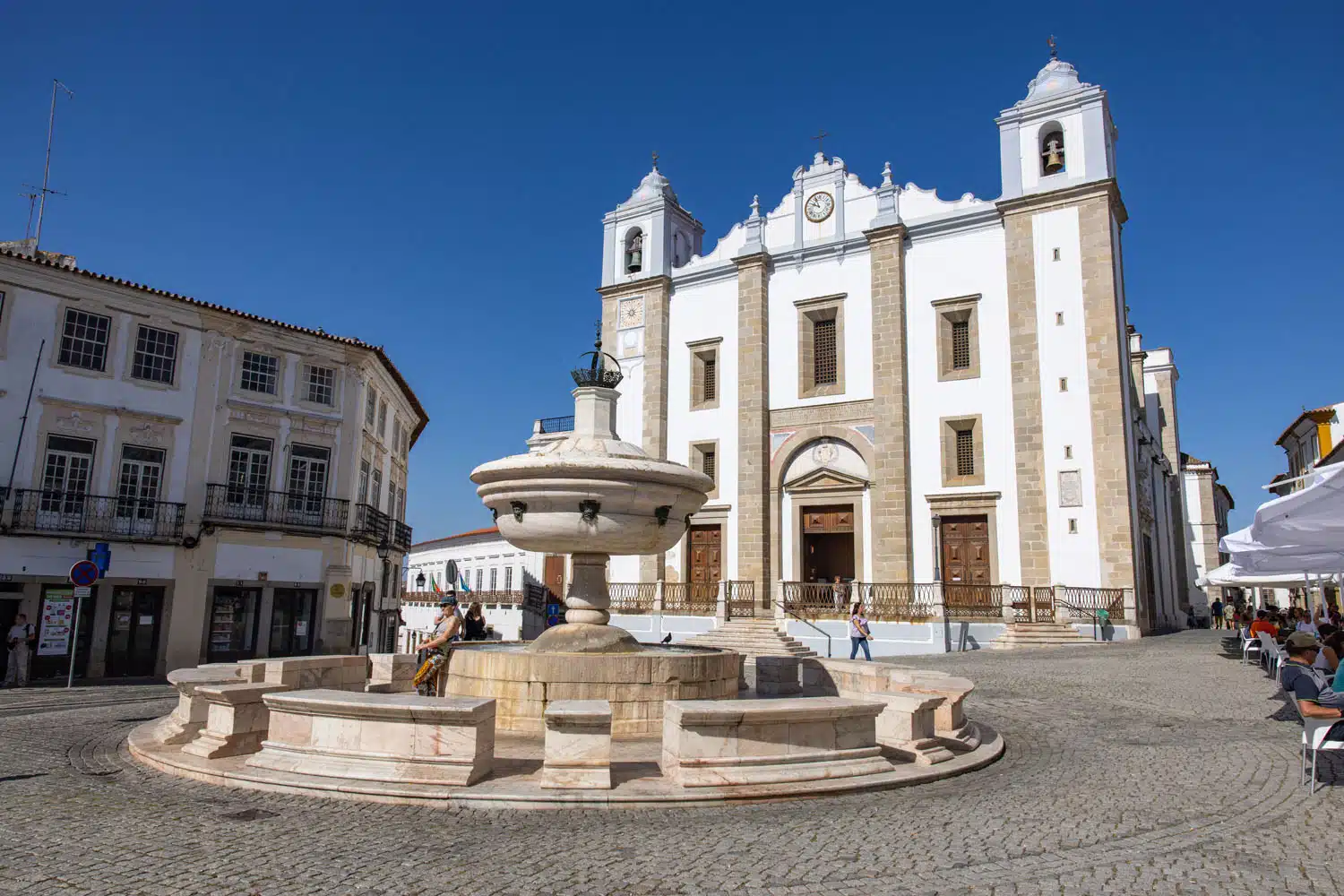
This bustling square is busy all day, with cafes spilling out into the square, locals hanging out by the fountain, and curious visitors photographing Santo Antão Church, which sits right on the square. If you need to visit to the tourist information office, you can find that here as well.
From this spot, it is a relatively short, easy, scenic walk to everything in listed next in Évora.
2. The Chapel of Bones
The Chapel of Bones (Capela dos Ossos) is one of Évora’s must-see sights.
Tucked away inside the Church of St. Francis, this small chapel is lined with the bones of 5,000 people. In the 16th century, the small cemeteries scattered around Évora were taking up valuable land. The bodies were exhumed and monks, taking inspiration from the bone chapel in Milan, Italy, arranged the bones in this chapel. Skulls, bones, and full skeletons decorate the walls of this ossuary. It is Portugal’s largest and most famous bone chapel (although the bone chapel in Faro, in the Algarve, is also very interesting to see).
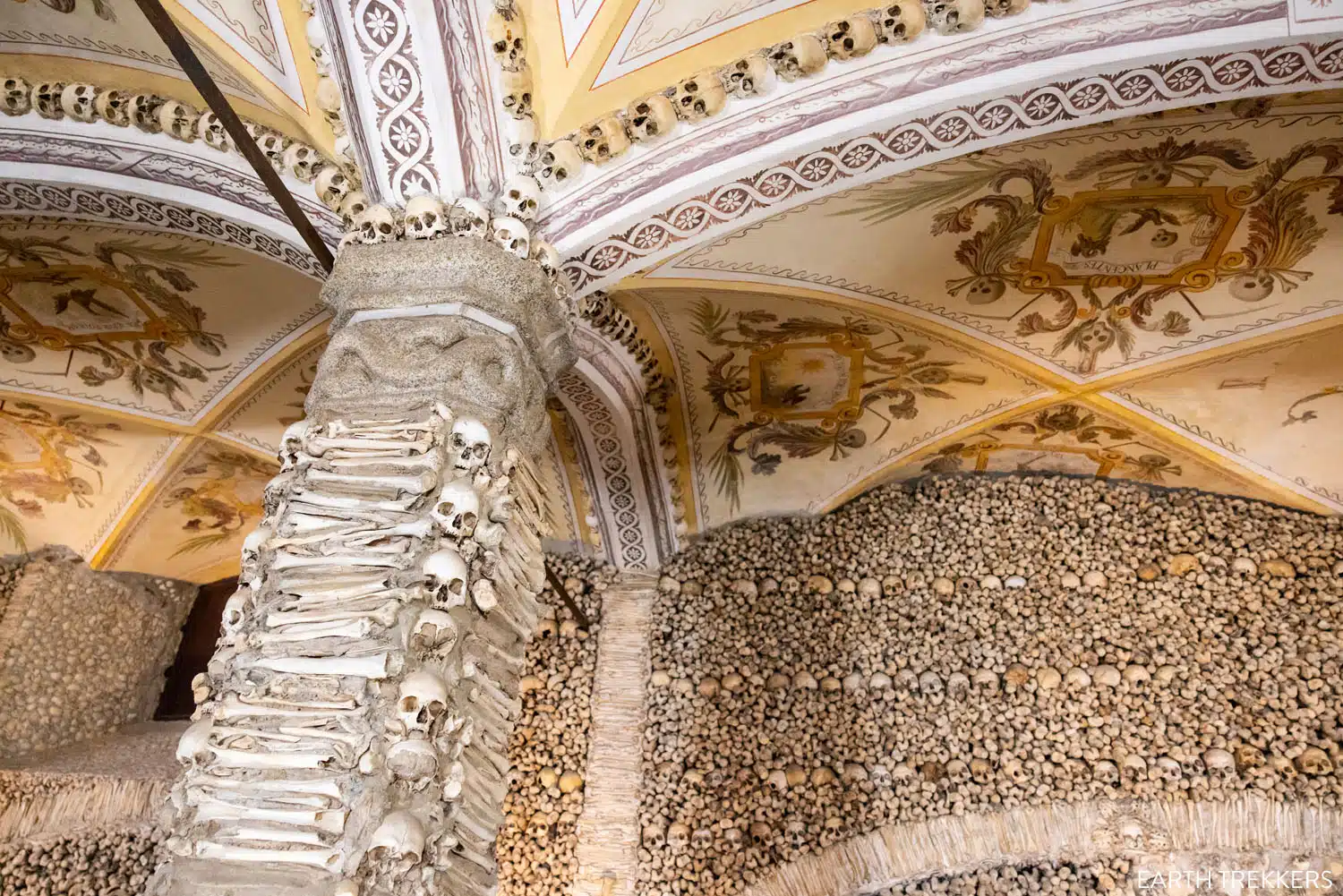
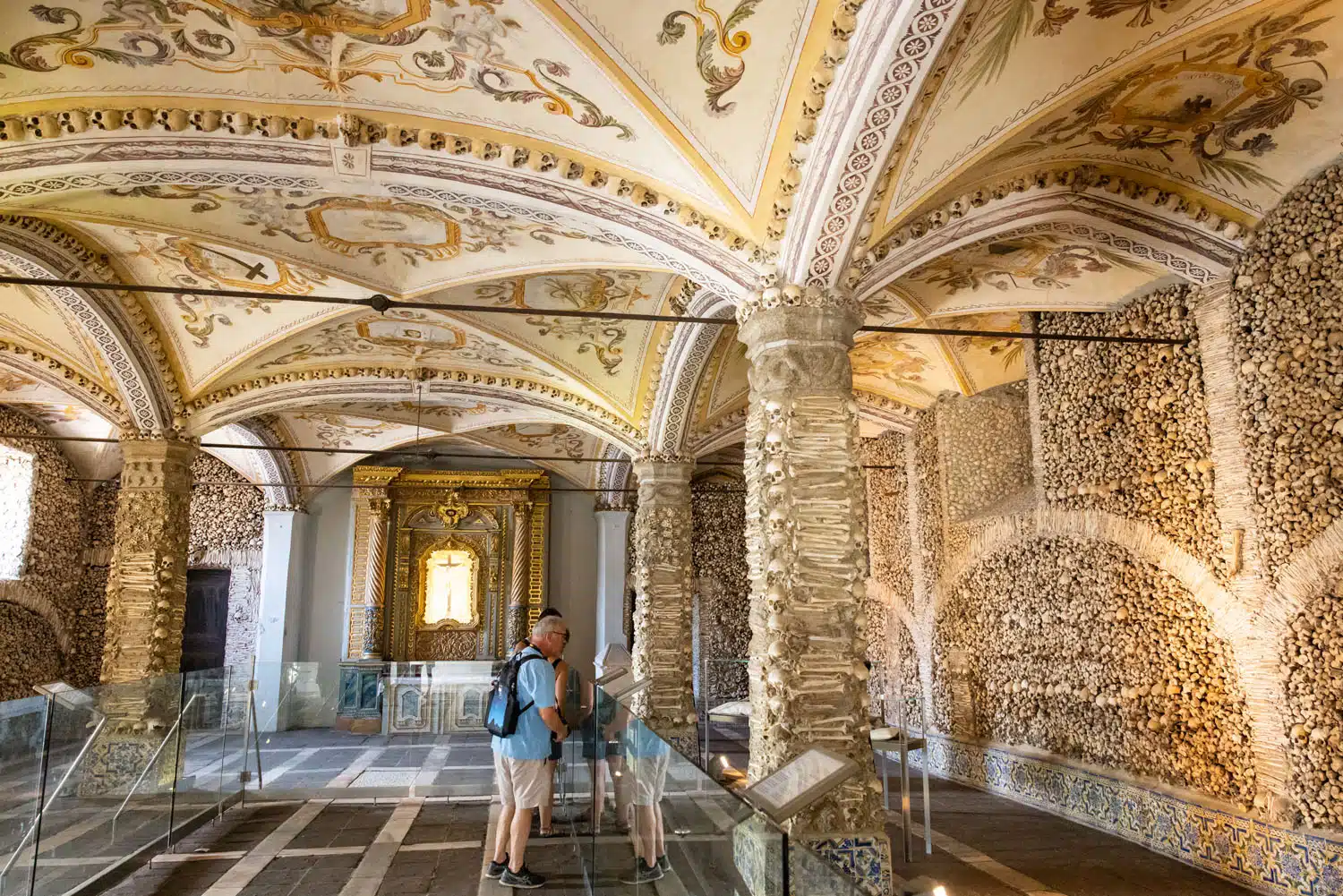
The Chapel of Bones is located inside of the Church of St. Francis (mentioned next), but it has a separate entrance. The entrance is to the right of the main entrance into the church. There is a small fee to enter. Get hours and pricing on the official website.
3. The Church of St. Francis
This Gothic church (Igreja de São Francisco in Portuguese) was built between 1475 and the 1550’s. It is most famous for the Chapel of Bones but it’s worth a quick visit to see the huge, vaulted nave and the side chapels. It is free to visit.
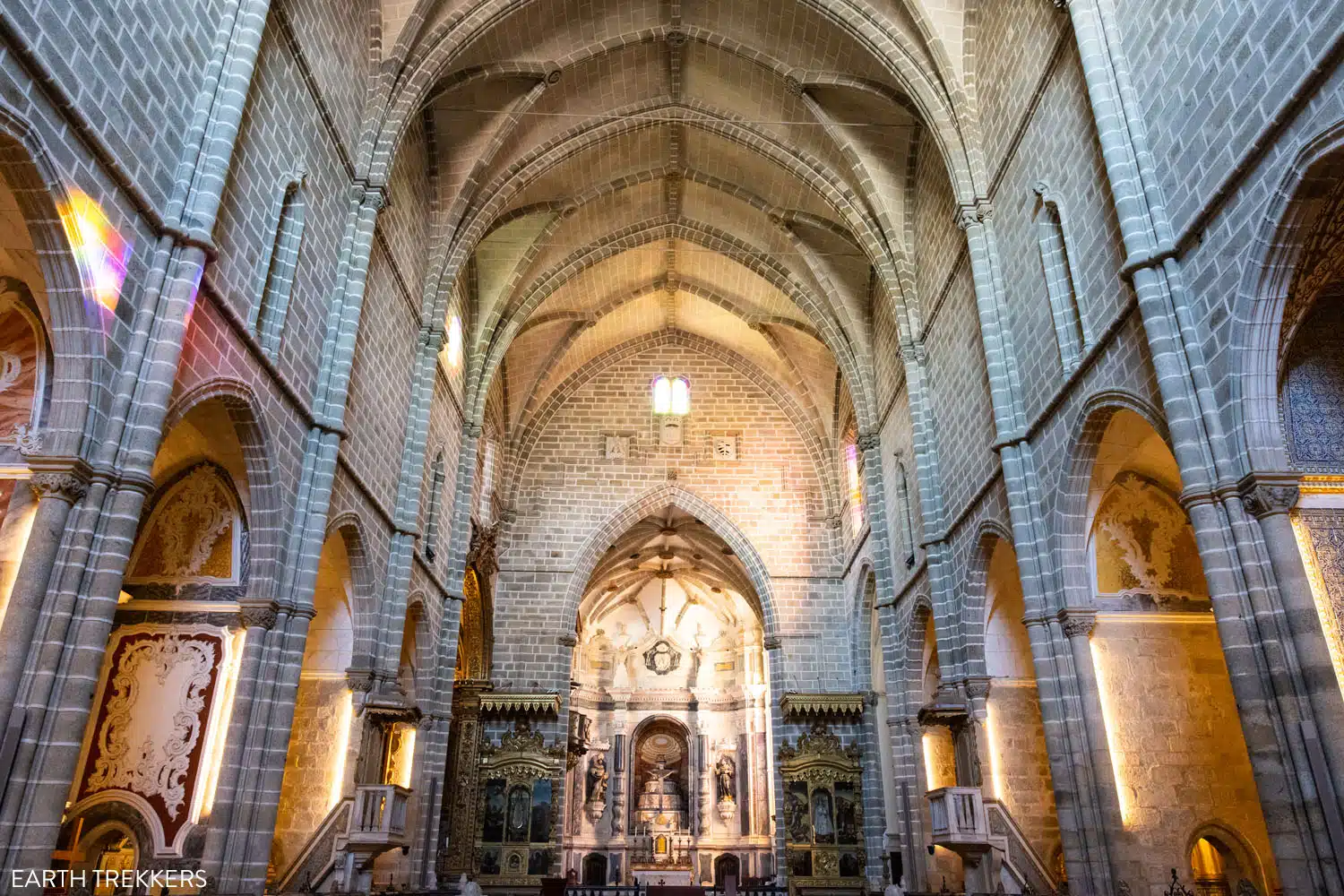
Church of St. Francis
4. The Public Garden of Évora
A short walk from the Church of St. Francis, this peaceful spot is also worth a quick visit.
We thought the Faux Ruins (Ruínas Fingidas) were the most interesting thing to see, but you can also visit Don Manuel Palace (the Royal Palace), see the remains of a medieval wall, and even see peacocks roaming the garden. The gardens are free to visit but there is a fee to enter the Royal Palace.
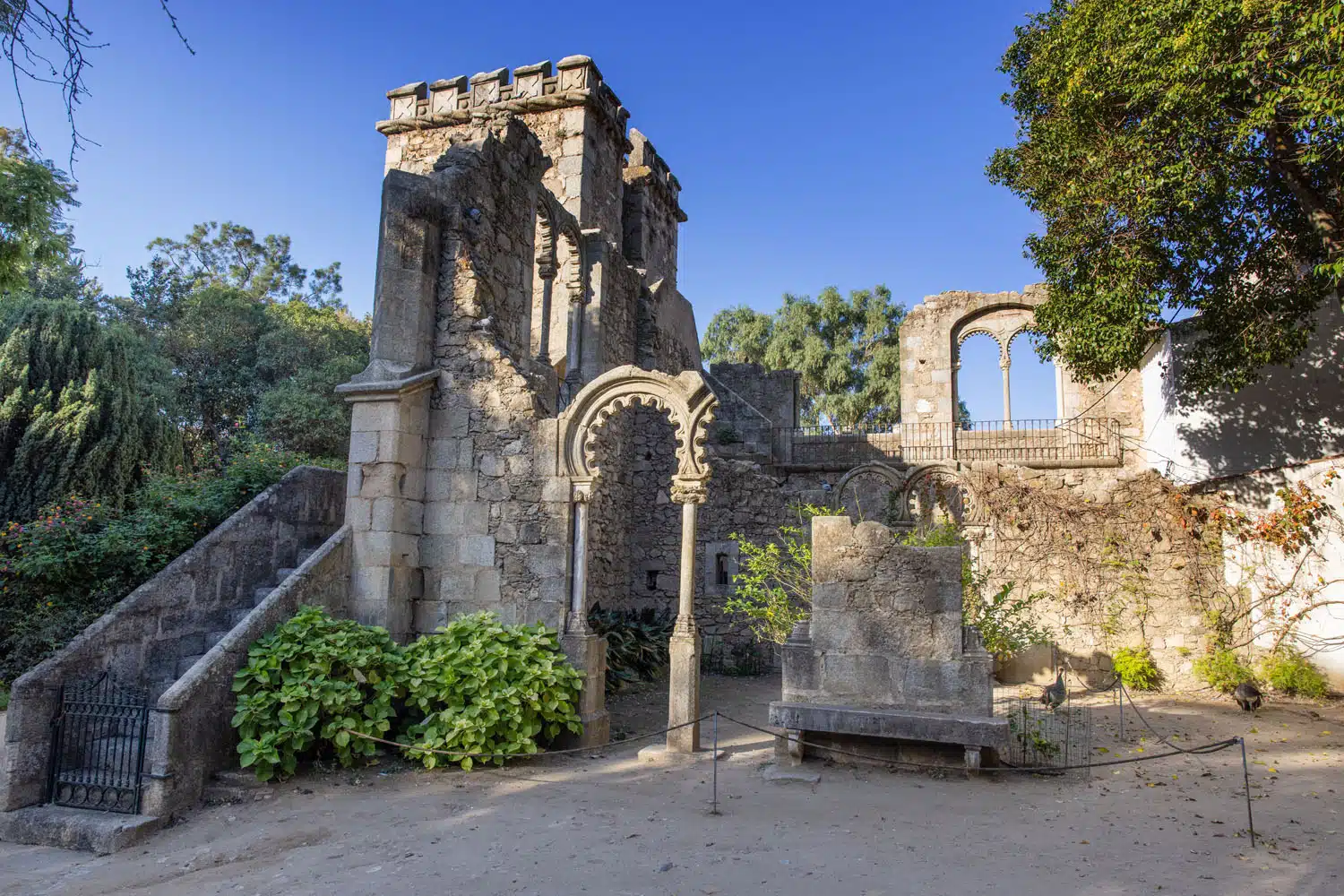
Ruínas Fingidas
5. The Historic City Center
The city center of Évora is a UNESCO World Heritage Site. The town center, which is surrounded by medieval walls, is a maze of cobblestoned streets and whitewashed buildings trimmed in golden yellow paint. Exploring the side streets, as you walk between Évora’s top sights and restaurants, is one of the best experiences to have in town.
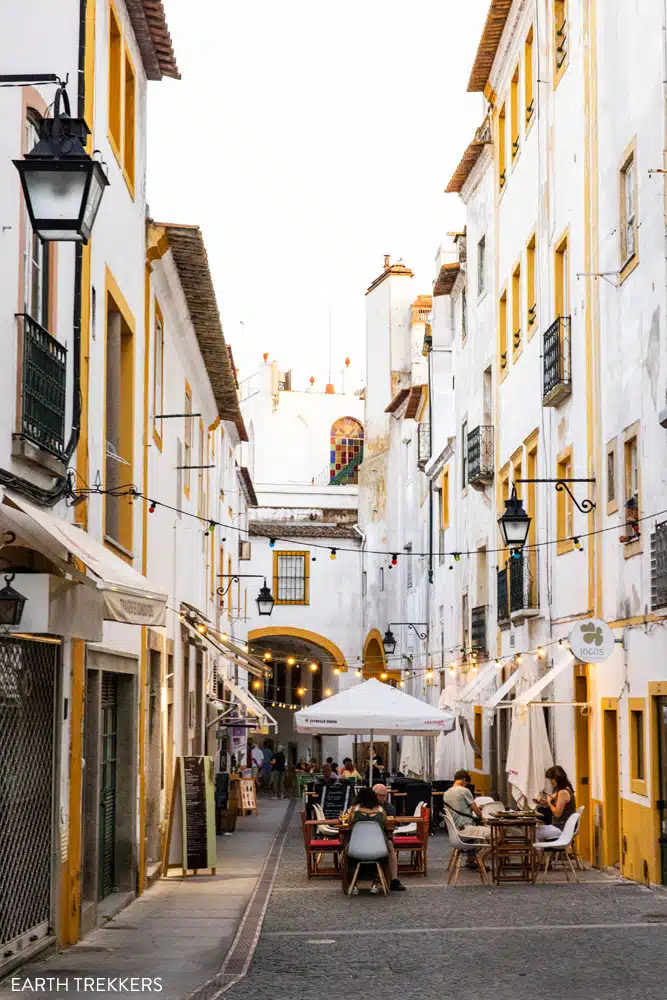
6. The Roman Temple
This temple is thought to have been constructed in the first century AD, in dedication to Augustus, who was the first emperor of Rome. It is located in the city center and is included in the UNESCO World Heritage Site designation for Évora.
The Roman Temple sits on a small square just a few steps from the Cathedral of Évora.
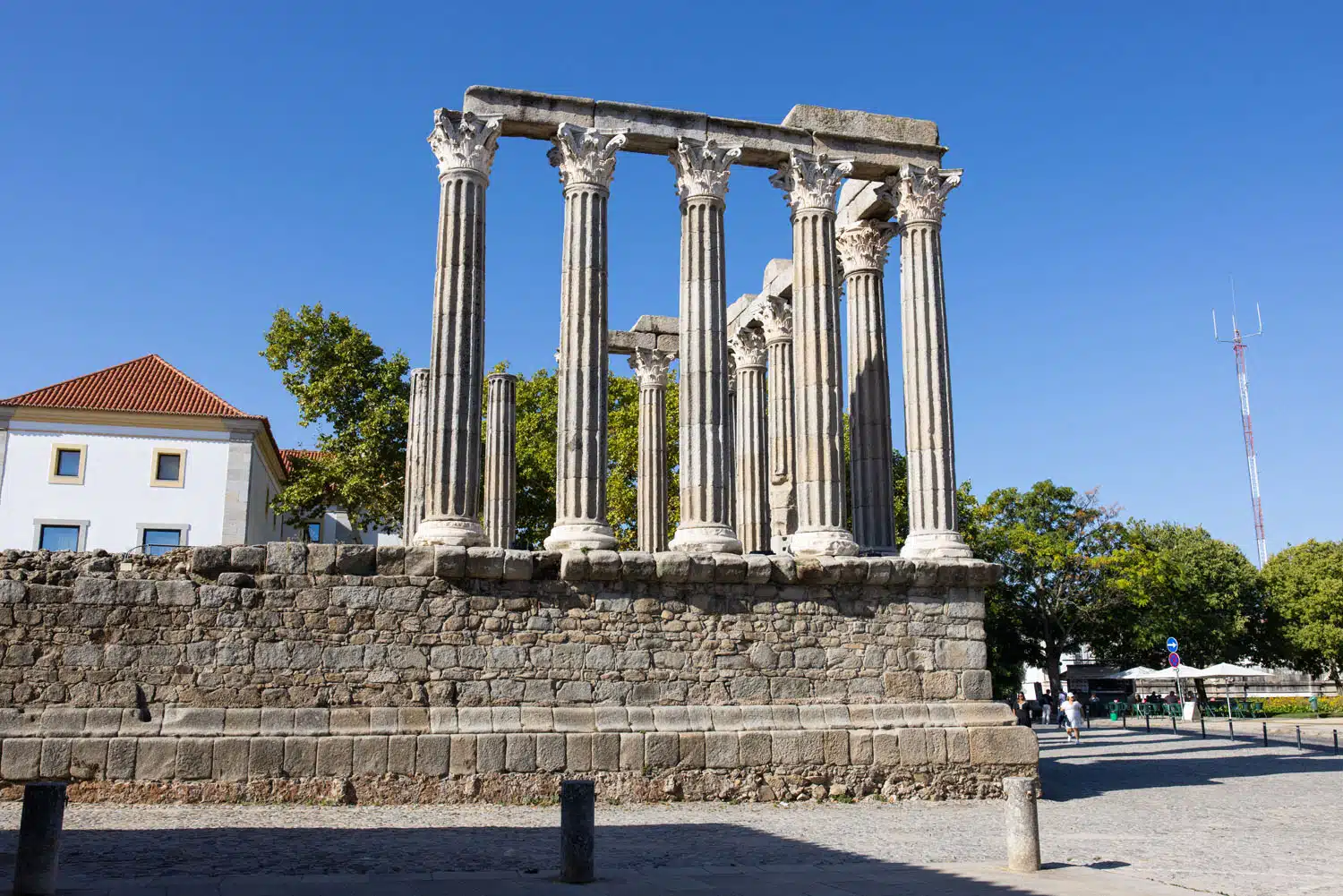
7. The Cathedral of Évora
Like the Roman Temple and Evora city center, the cathedral is a UNESCO World Heritage Site.
This Roman Catholic church was built between 1186 and 1204 and then later enlarged. It is believed that the flags of Vasco da Gama’s fleet were blessed here before his first voyage.
On a visit to the cathedral, there are few things to see and do.
For free, you can enter the cathedral and see the nave. If you want to take photos, you will need a ticket to do so. A ticket also allows you to visit the rooftop and a few notable rooms.
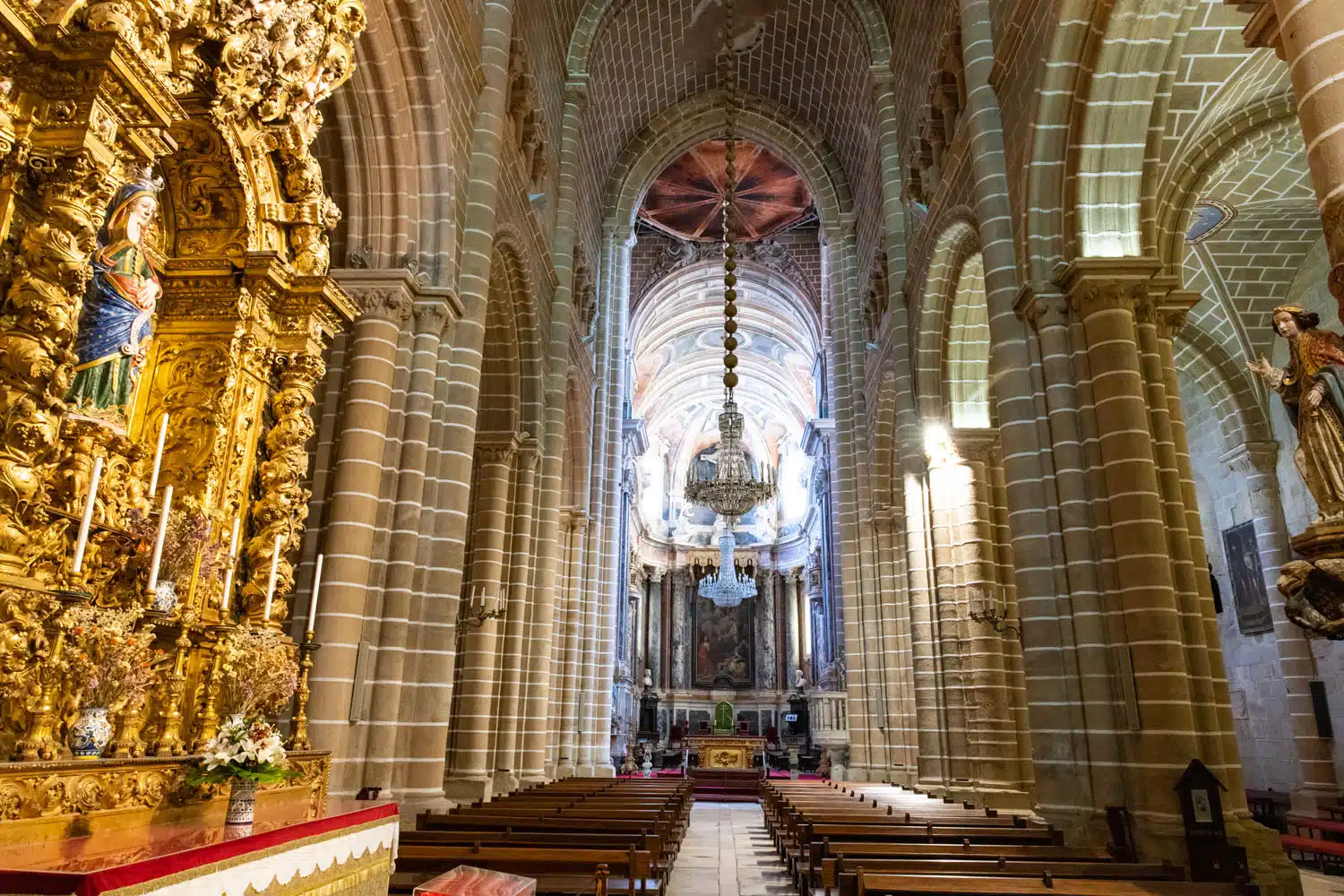
Not to be missed is the rooftop of the cathedral. To get here, you will walk up a tight spiral staircase, but your reward is views from the highest viewpoint in Évora. From the rooftop, you get 360° views of the city and it is well worth the effort.
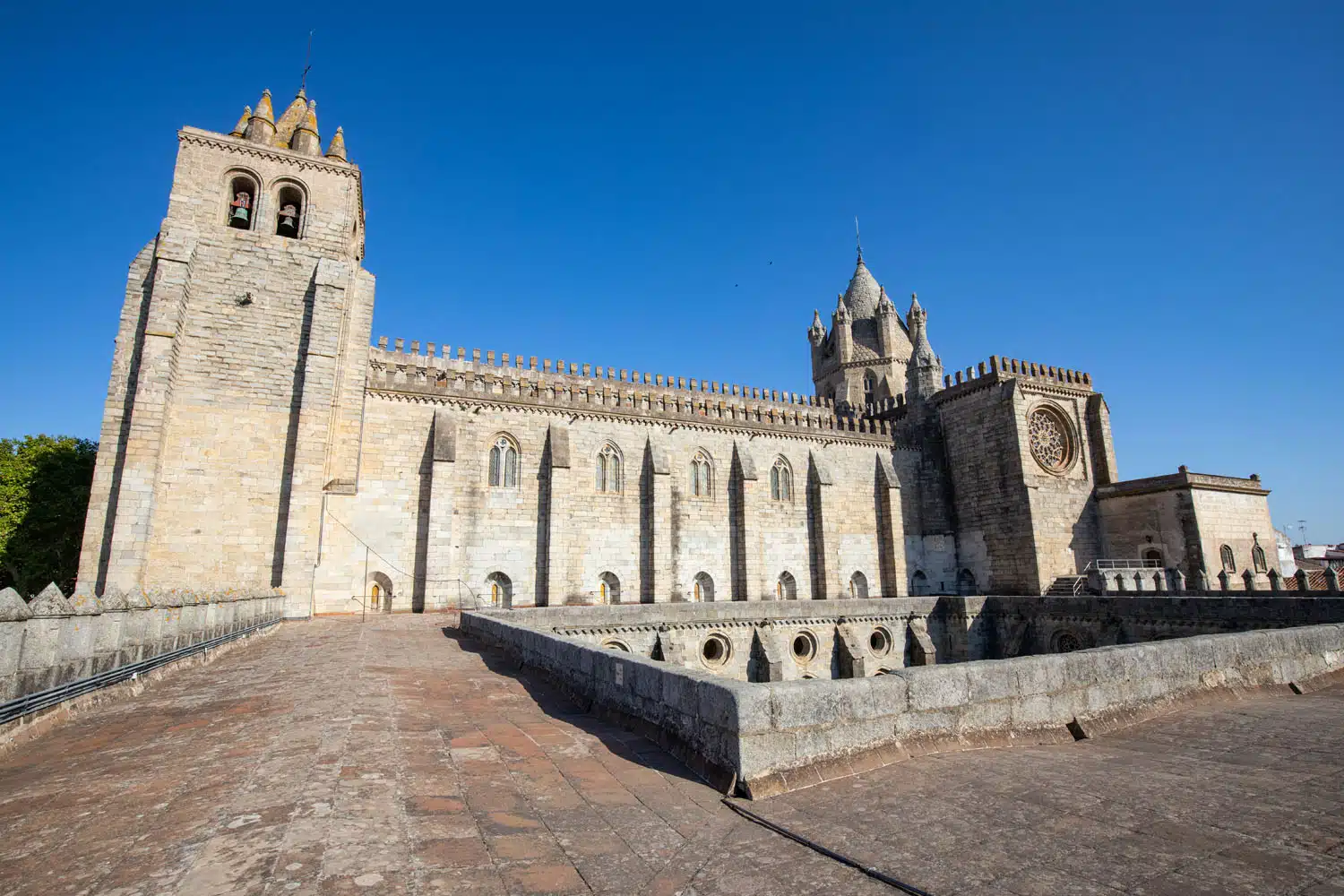
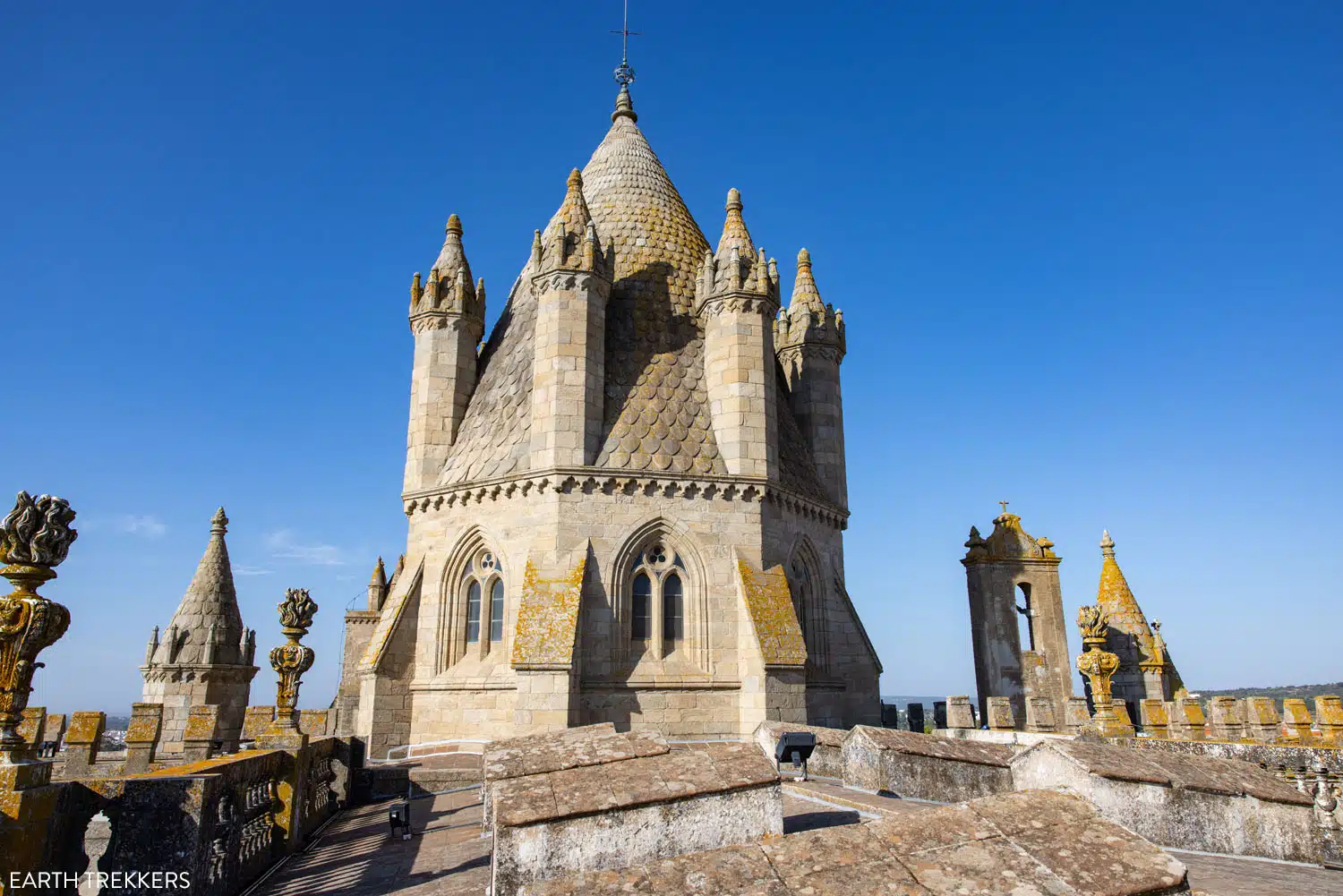
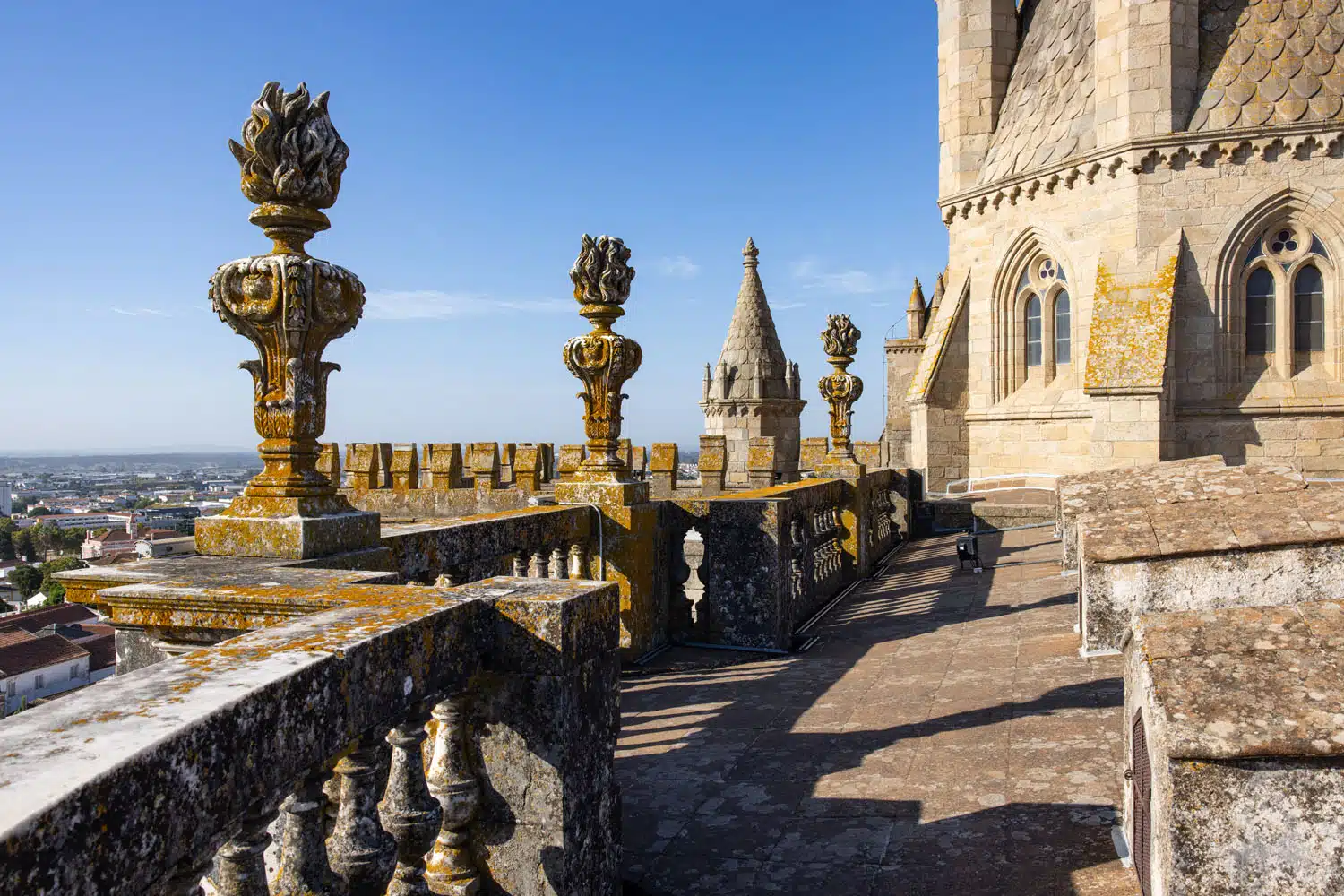
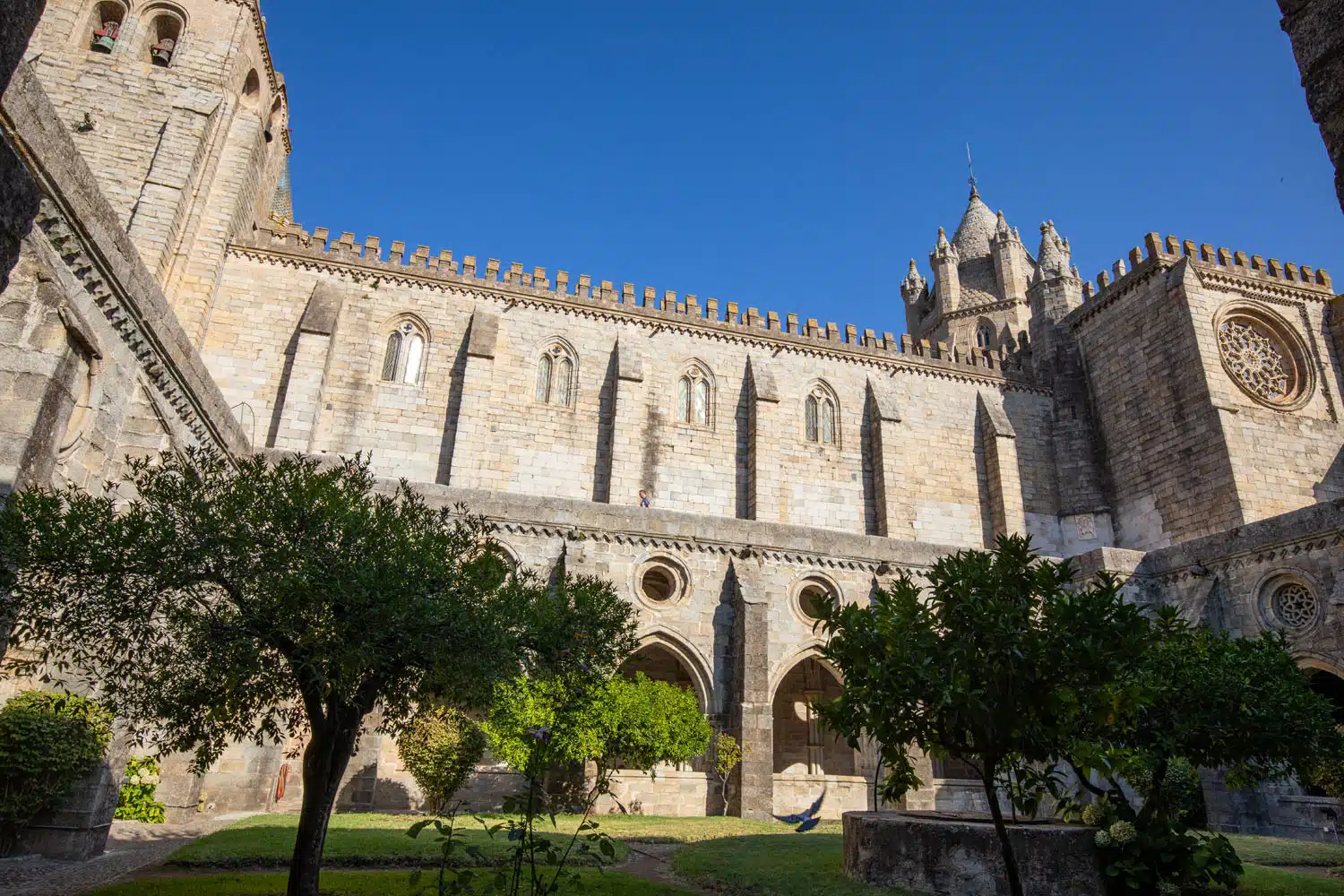
The cloister
You can also visit the cloister, the Religious Art Museum, and the choir.
Get hours and pricing here.
8. Church of St. John the Evangelist
The Church of St. John the Evangelist sits next to the Roman Temple. It is on a shared ticket with the Palace of the Dukes of Cadaval.
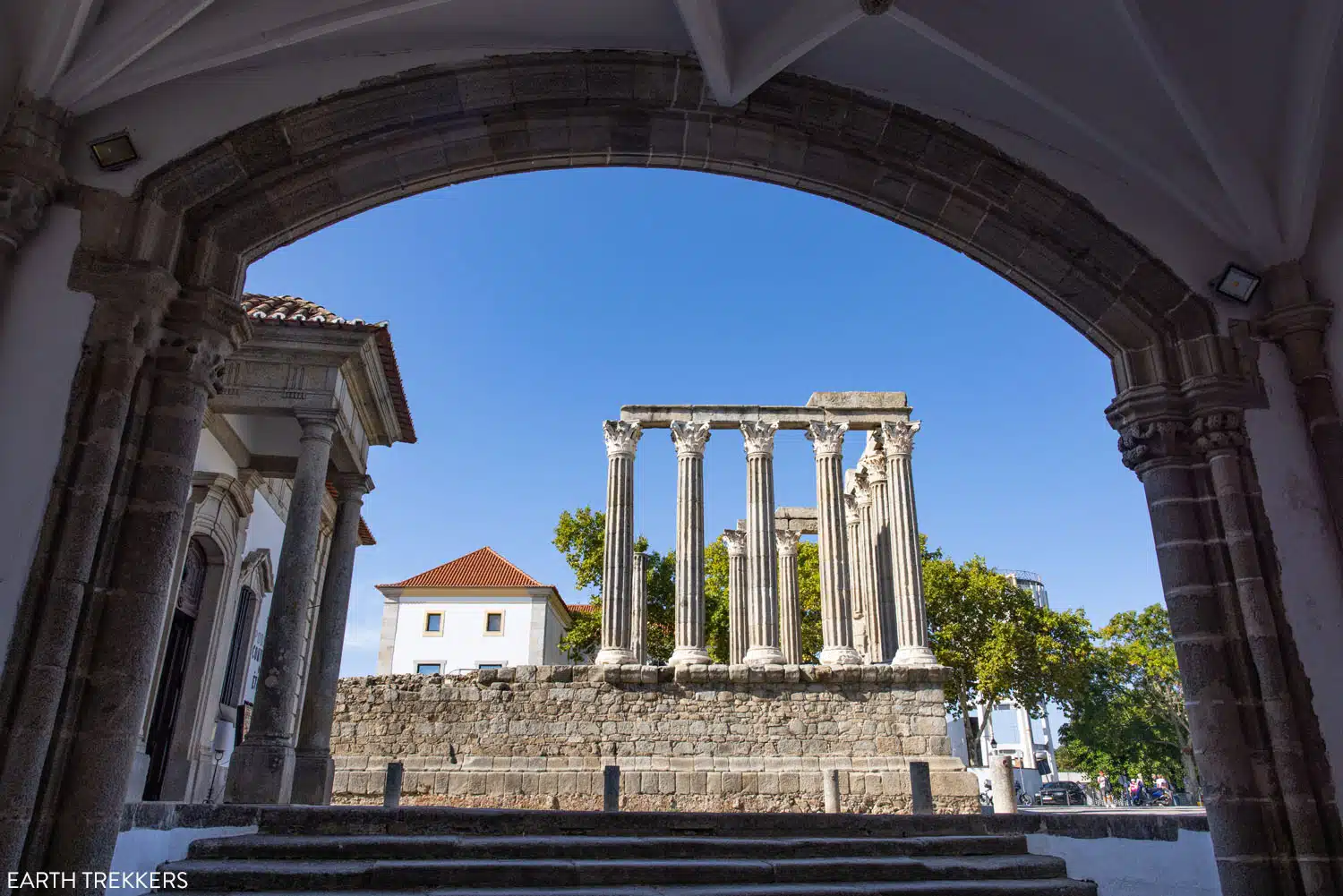
A view of the Roman Temple from the Palace of the Dukes of Cadaval
On display in the Palace of the Dukes of Cadaval are works of religious art. More interesting to us was the Church of St. John the Evangelist, with its array of blue and white tiles. If you walk halfway down the main aisle, look for the glass window in the floor to see stacked bones in a cistern.
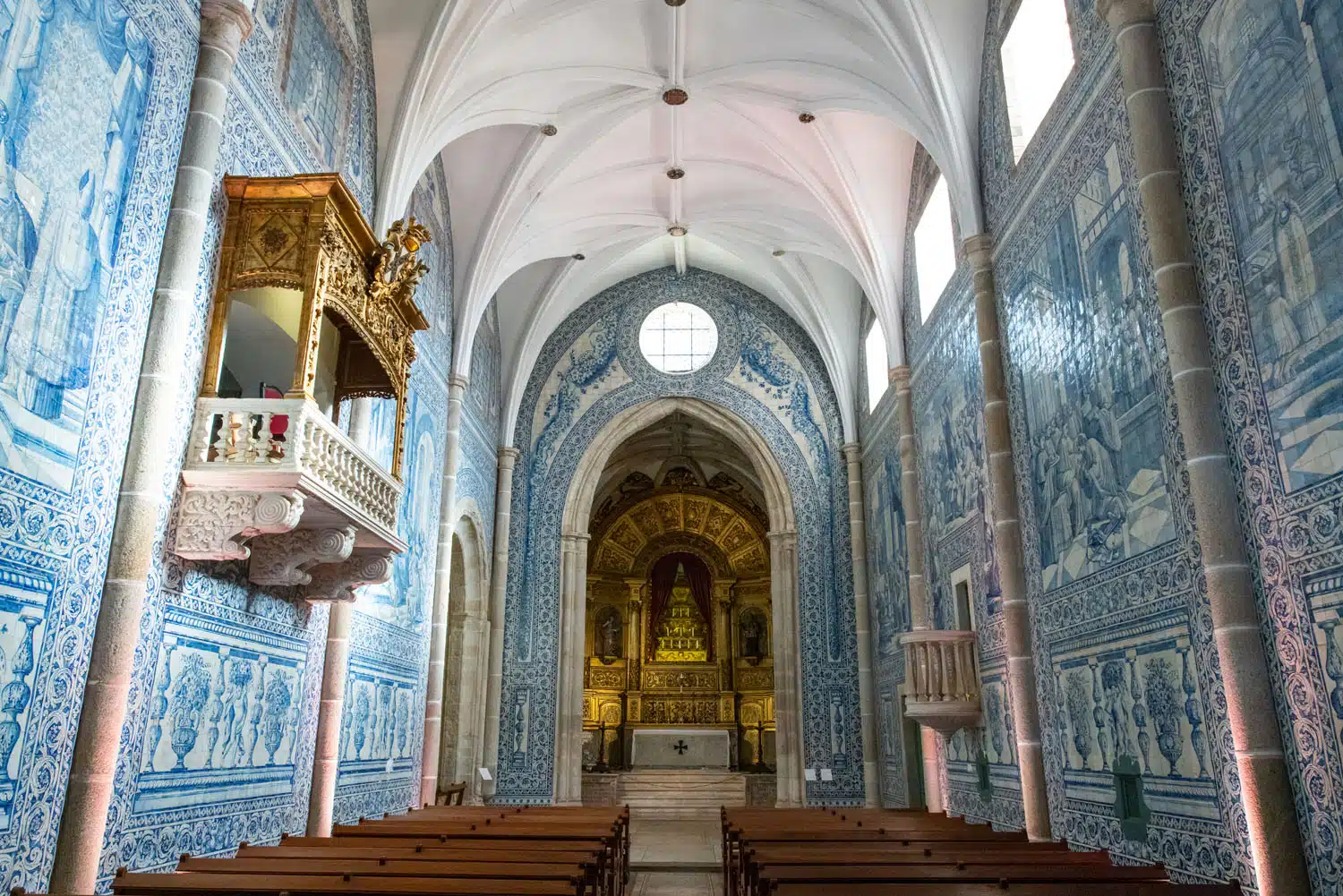
Church of St. John the Evangelist
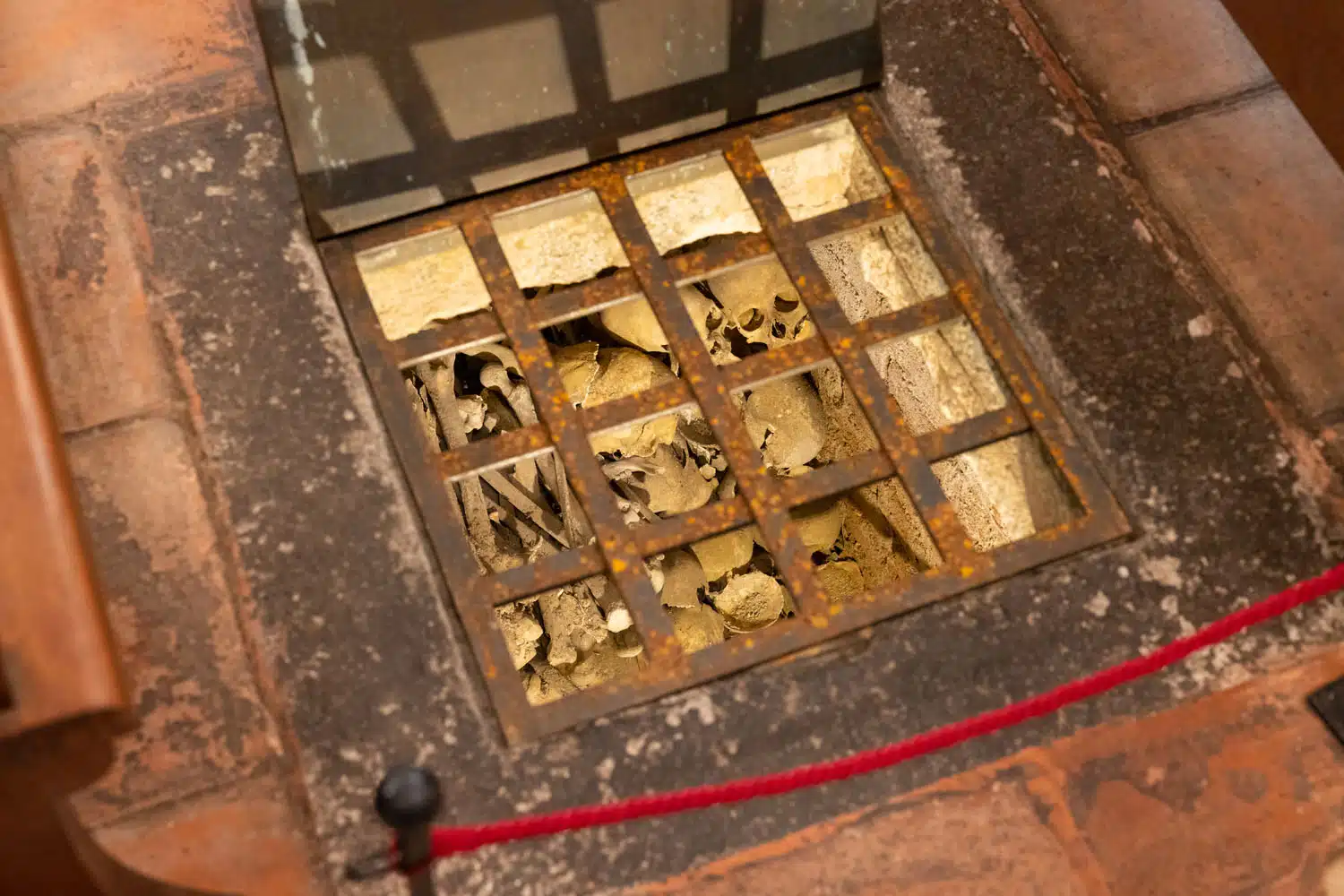
9. Agua de Prata Aqueduct
In 1532, an aqueduct was constructed to bring water to Évora from a nearby estate. The aqueduct is no longer used but you can still see it on the north side of town.
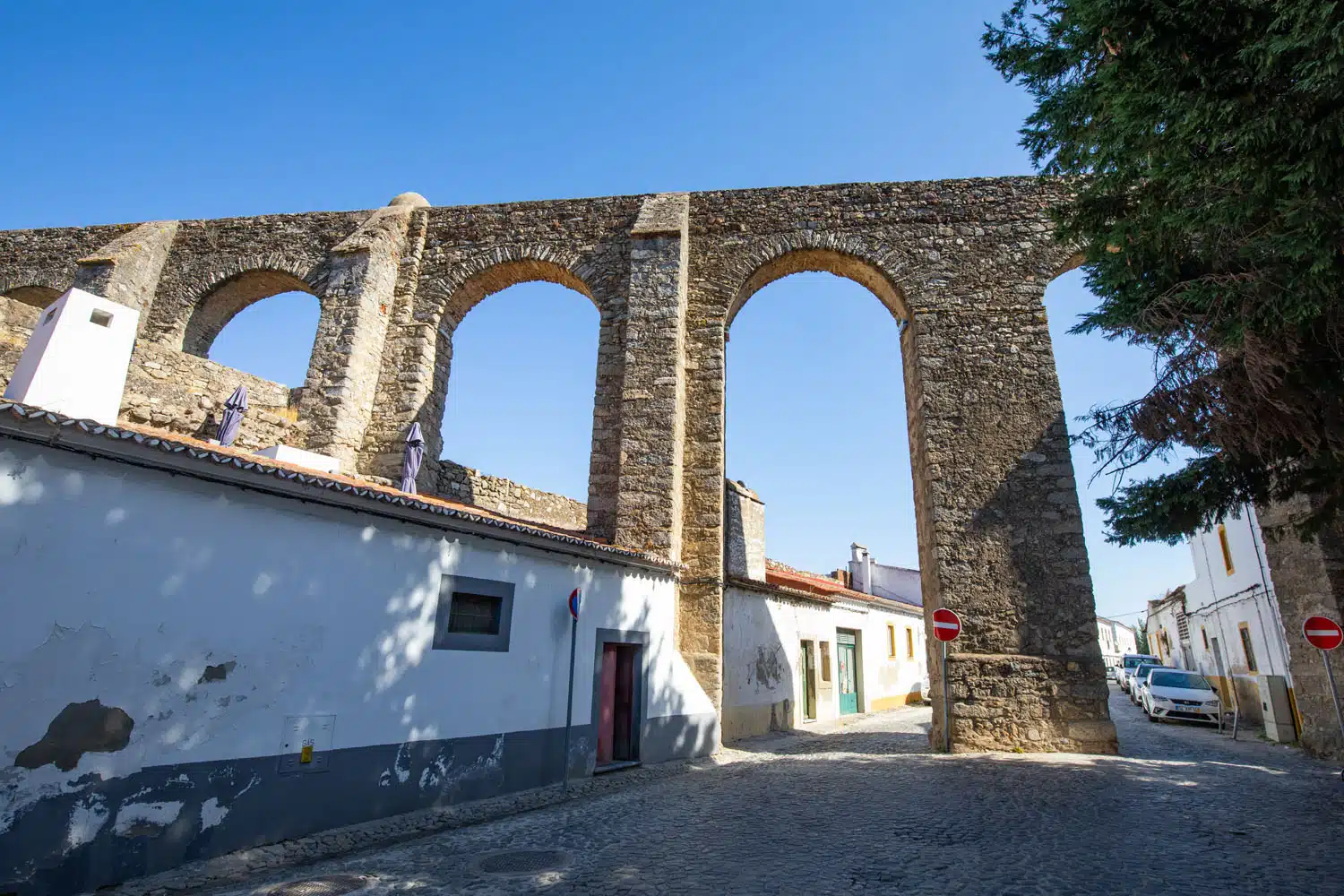
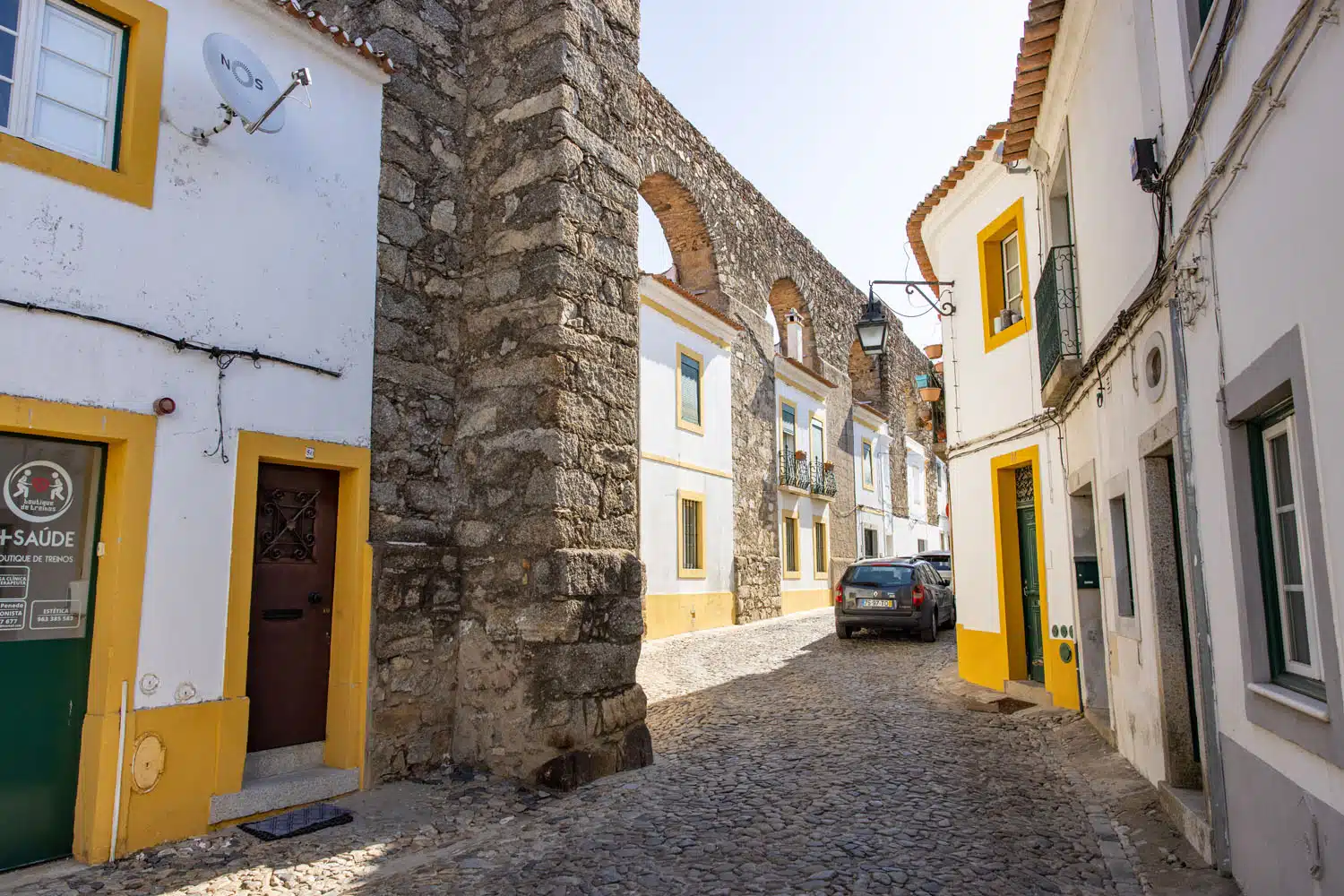
10. Try the Local Pastries
Like many Portuguese cities, Évora has its signature pastry. Queijadas de Requeijão is a blend of eggs, sheep cheese, and sugar, similar to cheesecake.
We sampled this sweet treat at The Bakery Lounge, which has a small, outdoor, tree-covered courtyard. At this same bakery we also ordered the Évora, an almond pastry that is also unique to Évora. Tim also got his daily fix of Pastel de Nata and I had a slice of lemon blueberry cake.

Another local food to try is Pão de Rala, a sweet bread that was offered to King Sebastian on his visit to the city. Try it at Pastelaria Conventual Pão de Rala.
11. Get Some R&R at the Roman Baths
This is one of the most unique things to do in Évora. At In Acqua Veritas, you can relax in the underground Roman baths and add on a relaxation massage or hot stone massage. Learn more on the official website.
Things to Do Near Évora
Rota dos Vinhos do Alentejo
The Alentejo is one of Portugal’s best-known wine regions. The Rota dos Vinhos do Alentejo is a wine route in this region that promotes more than 60 wineries. Visit the wineries, tour the cork forests, have a picnic, and go wine tasting. The official website for the region is the perfect place to learn more and get recommendations on where to go.
Visit the Standing Stones on the Megalithic Circuit
Located outside of the Évora are archaeological sites that are 7,000 years old. These standing stones are older than Stonehenge by about 2,000 years.
Almendres Cromlech and Menhir dos Almendres are part of the Megalithic Circuit in the Alentejo regions. These sites are located near Nossa Senhora de Guadalupe.
Almendres Cromlech is a circular ring of granite monoliths that form several concentric circles. Some stones are engraved with motifs.
Getting here is a bit difficult. Part 1 is a 10-minute drive on a rutted, potholed dirt road to get to a parking lot. Then it is a 10-minute walk on a dirt road to a viewpoint of the standing stones. Our visit was in 2023, when you could get closer to the stones, but reading recent reviews online, it now sounds like you can only see the stones from a distance. With the drive and the additional walk, it doesn’t sound like it is worth it, unless you have an interest in archaeology.
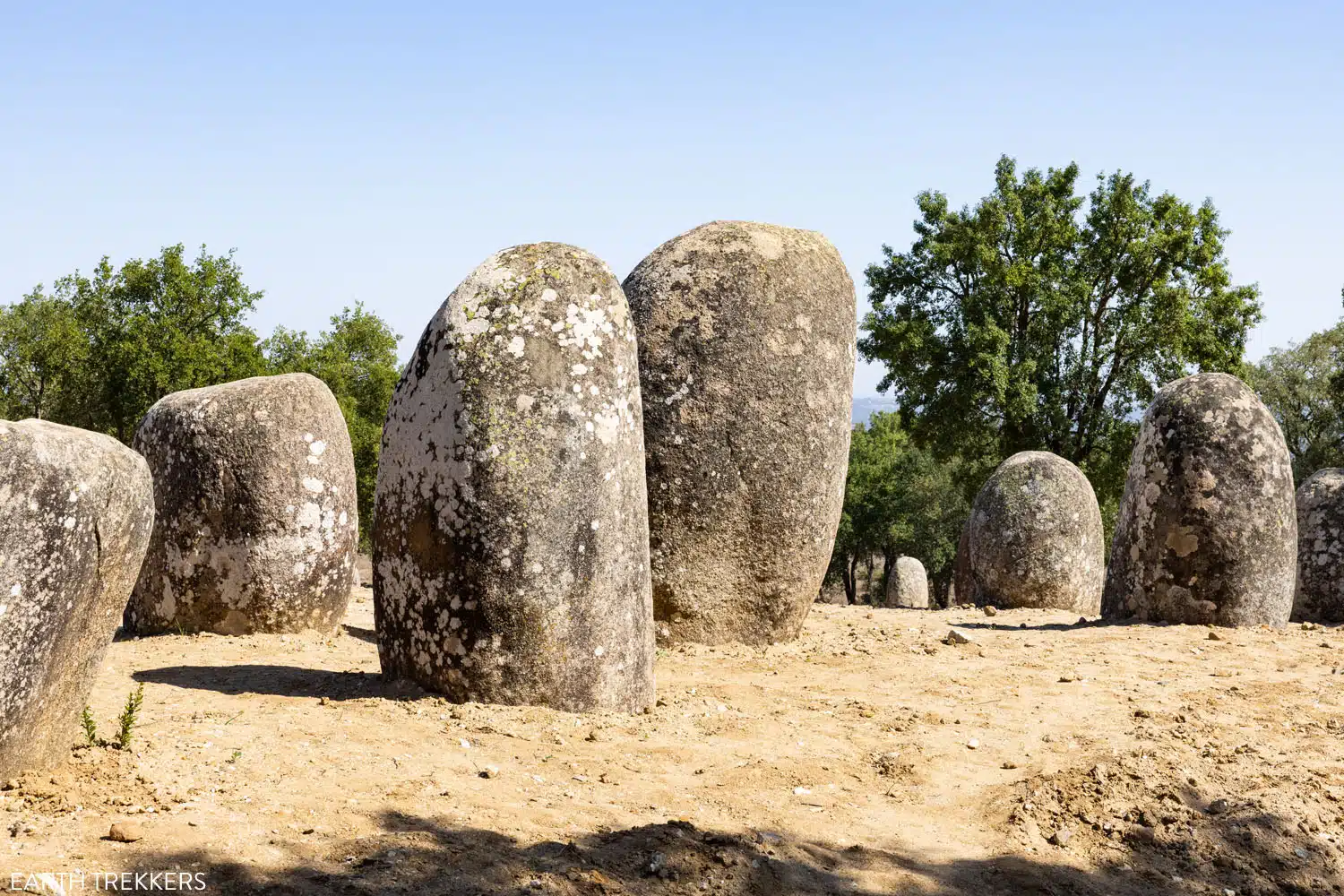
Almendres Cromlech
Menhir dos Almendres is located near Almendres Cromlech. To see this single standing stone, it is about a 10-minute walk on a dusty trail. The trail starts on the same dirt road that goes to Almendres Cromlech. Since there is only one stone here, it is less interesting than Almendres Cromlech.
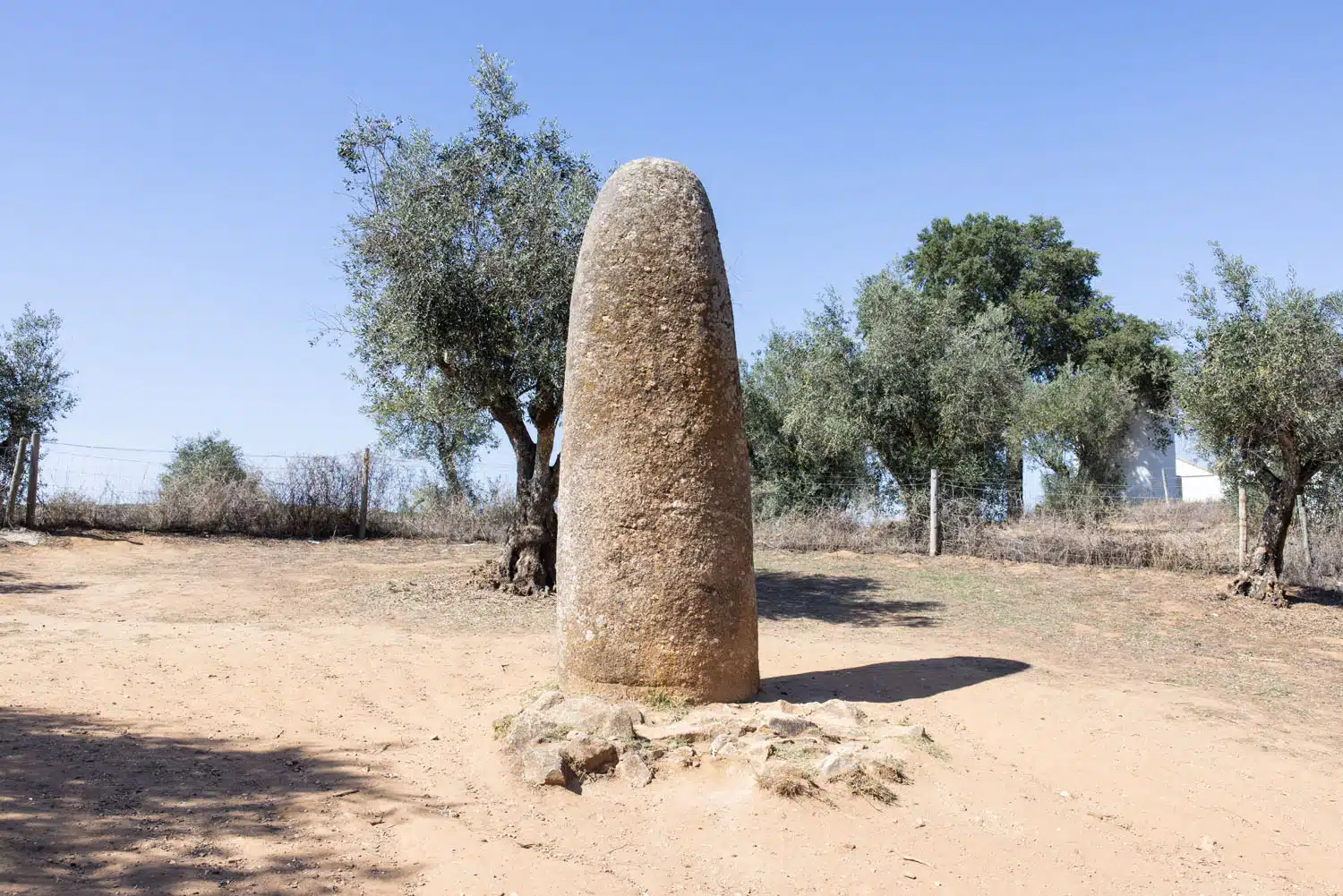
Menhir dos Almendres
See the Cork Trees
If you choose to visit Almendres Cromlech, the drive to the archaeological site will take you through a forest of cork trees. As you drive through the Alentejo region, it is easy to spot the cork trees along the roadsides. Look for the bright red trunks of the trees…once you see one, they are easy to spot.
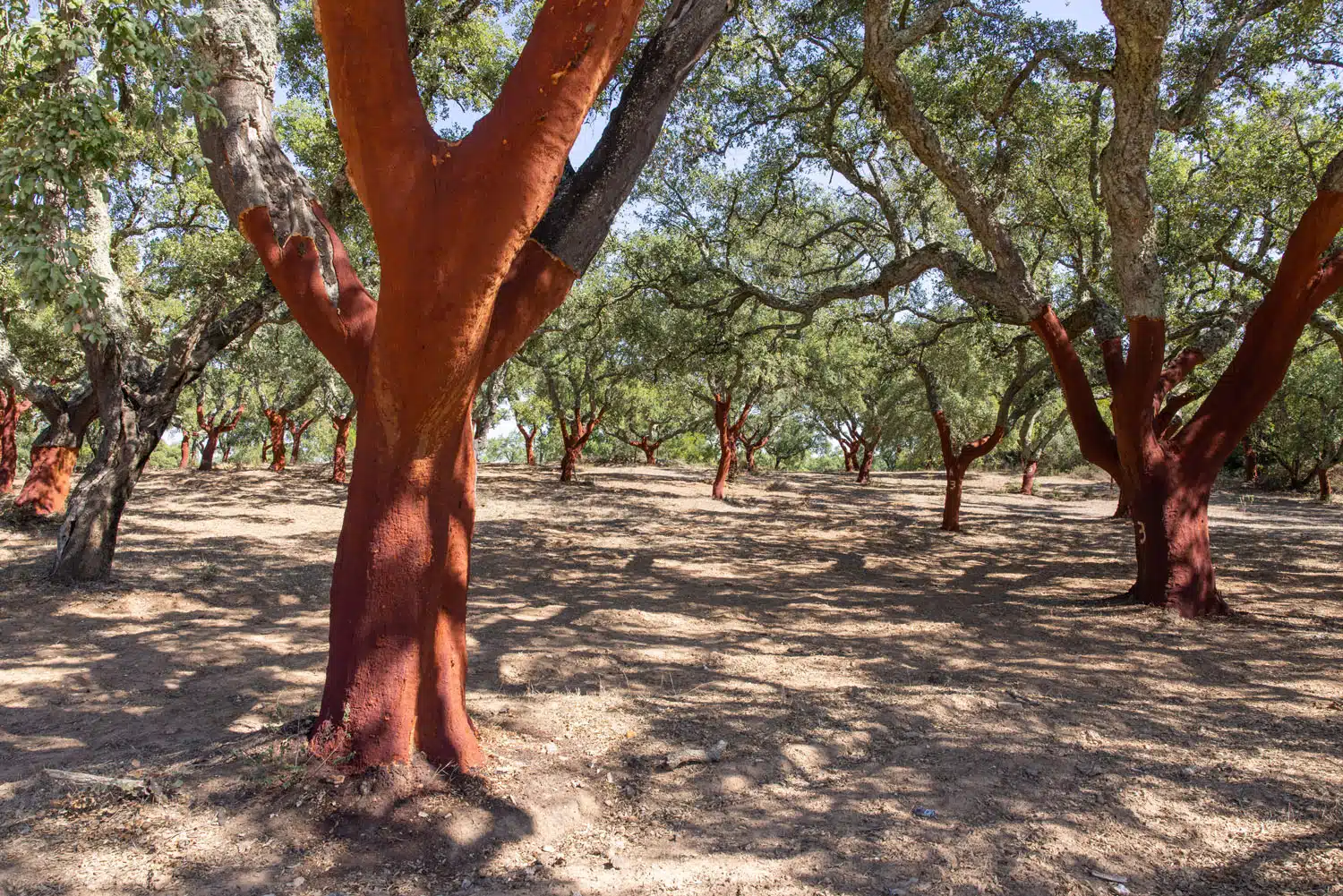
Things to Do in Évora: On a Map
How to Use This Map: Click the icons on the map to get more information about each point of interest. To take this map with you, click the star next to the title of the map which adds it to your Google account. Next, within your Google Maps app, select ‘Saved’ and then select ‘Maps’. This map title will now appear in your list.
How Much Time Do You Need in Évora?
If you simply want to visit Évora’s must-see sights (the Chapel of Bones, the Roman Temple, and the Cathedral) and stroll through the city center, a few hours is all you need.
One full day gives you enough time to thoroughly explore Évora, do a little shopping, and visit the nearby archaeological sites.
How to Get to Évora
Évora is located 130 km east of Lisbon. It has a train station, so it is well connected to Lisbon, Faro, and other Portuguese cities. Check train timetables and pricing here.
If you are on a road trip through Portugal, here are driving distances and times to Évora from nearby destinations:
- Lisbon: 130 km, 1.5 hours
- Porto: 400 km, 3.5 hours
- Faro: 225 km, 2.5 hours
- Lagos: 250 km, 2.75 hours
- Monsanto: 245 km, 3 hours
How to Get Around Évora
Évora is very small and compact. It is quick and easy to walk to all of the sites we listed above, with the exception of places located outside of Évora, such as Almendres Cromlech and the Alentejo Wine Route.
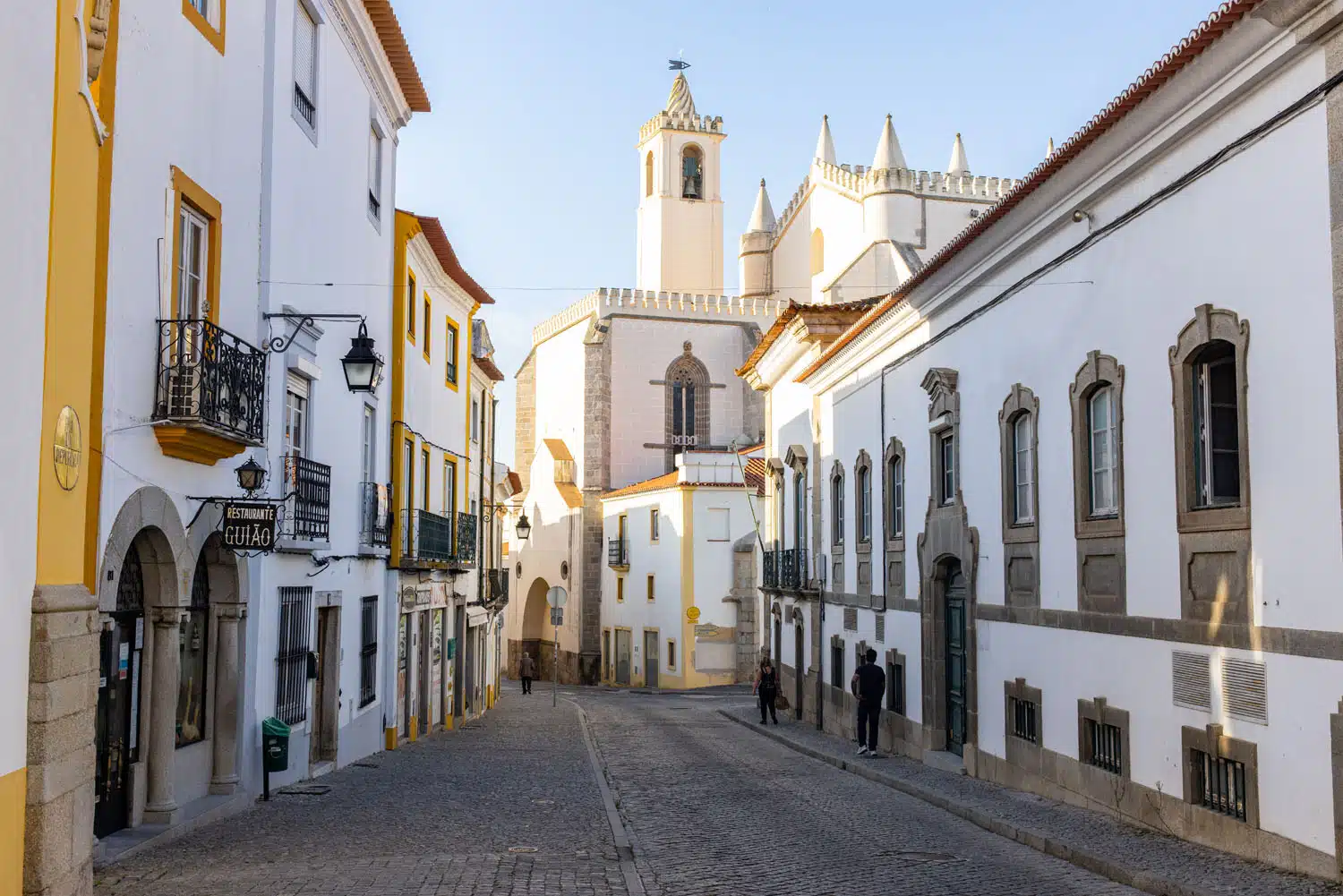
How to Plan a Day Trip to Évora from Lisbon
Since you can see the highlights in half of a day, it is easy to visit Évora on a day trip from Lisbon.
By bus, car, and train, you are looking at transit times of 1 hour 30 minutes. The Rede Expressos company runs the bus line between Lisbon (station: Lisboa Sete Rios) and Évora. The train runs from the Oriente station in Lisboa. Bus tickets and second-class train tickets come in around the same price, so which one you choose depends on your preference and the timetables for the date of your visit.
By car, it also takes 1 hour 30 minutes to drive to Évora. Parking is outside of the city center.
PLANNING YOUR TIME: In the morning, drive or take the train or bus to Évora. Spend the day in Évora and return to Lisbon in the evening.
TOURS OF ÉVORA: On this full-day tour from Lisbon, visit Évora and the nearby Megaliths of the Almendres Cromlech.
Where to Eat in Évora
Botequim da Mouraria is one of the highest rated restaurants in the city. This small, family run restaurant does not take reservations so be prepared to wait, but it’s worth it.
Taberna Tipica Quarta-feira is right around the corner from Botequim and they serve traditional Portuguese cuisine.
O Templo and Vinho E Noz also serve traditional Portuguese foods and get outstanding reviews.
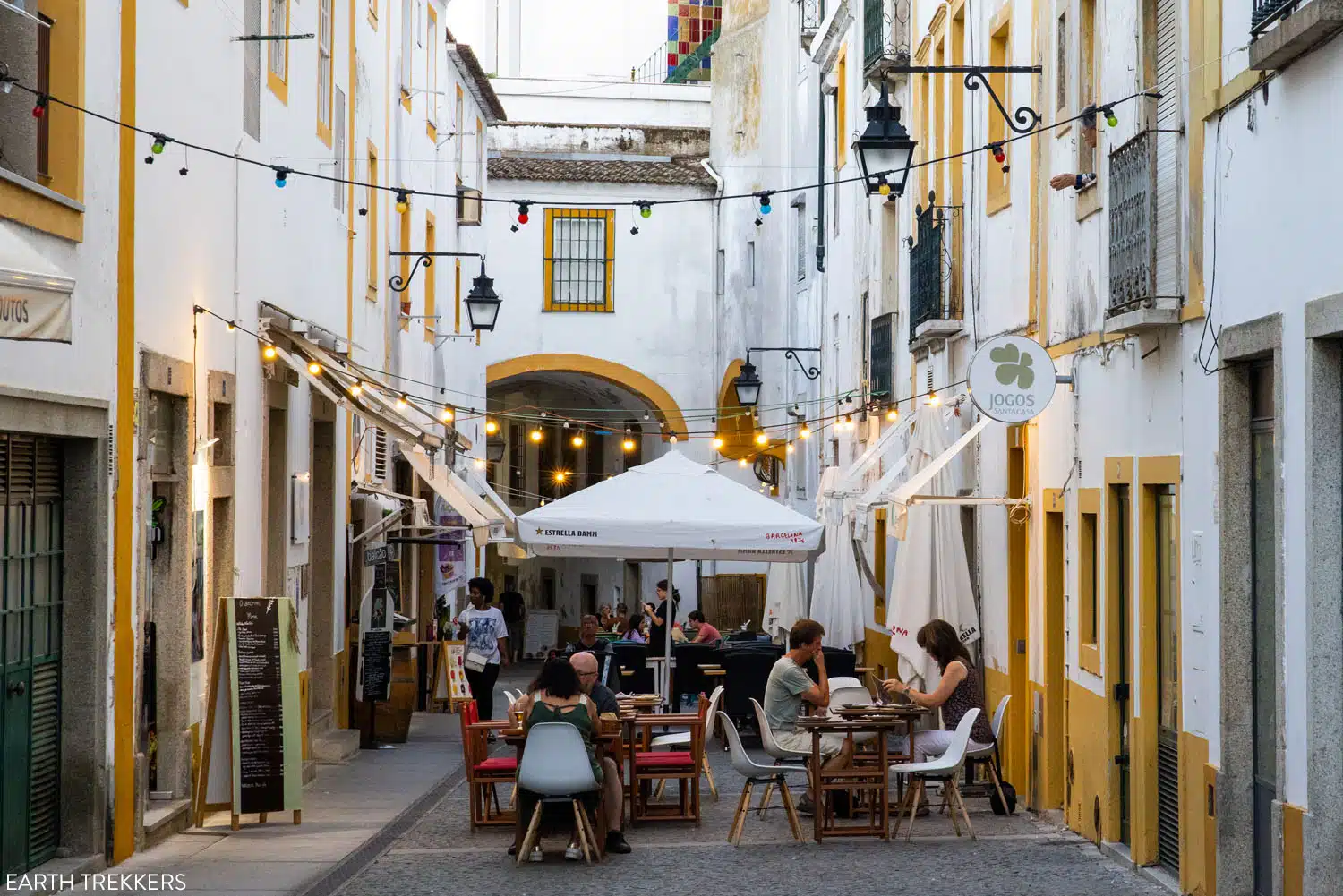
Where to Stay in Évora
If you want to stay in the historic city center, we recommend Casa das Arcadas (this is where we stayed; it is located on Praça de Giraldo), MouraSuites Hotel, and Casa Soure Suites and Apartments.
There are several highly rated hotels and resorts that are located outside of the city center, including Convento do Espinheiro, Octant Evora, and the Imani Country House.
Frequently Asked Questions
Is Évora worth it?
Évora is a small city that is packed with historical sites, such as the Roman Temple and Chapel of Bones. For those who have a lot of time for a trip to Portugal (2 weeks or longer), Évora is worth it. However, if you have less time, we think it is better spent in Porto, Lisbon, and the Algarve, and other Portuguese cities such as Sintra, Nazaré, Óbidos, Monsanto, Braga, and Guimarães.
What are the must-see sights in Évora?
Five must-see sights in Évora include the Roman Temple, the Chapel of Bones, the Cathedral of Évora, the aqueduct, and the historic city center.
What is Évora famous for?
Évora is famous for its UNESCO World Heritage Site listed city center and Roman Temple. It is also well known for its Chapel of Bones and medieval cathedral.
If you have any questions about how to plan a trip to Évora or the best things to do in Évora, let us know in the comment section below.
More Information for Your Trip to Portugal
We have TONS more information about Portugal in our Portugal Travel Guide, including Lisbon, Sintra, Porto, the Algarve, the Douro Valley, and Madeira.
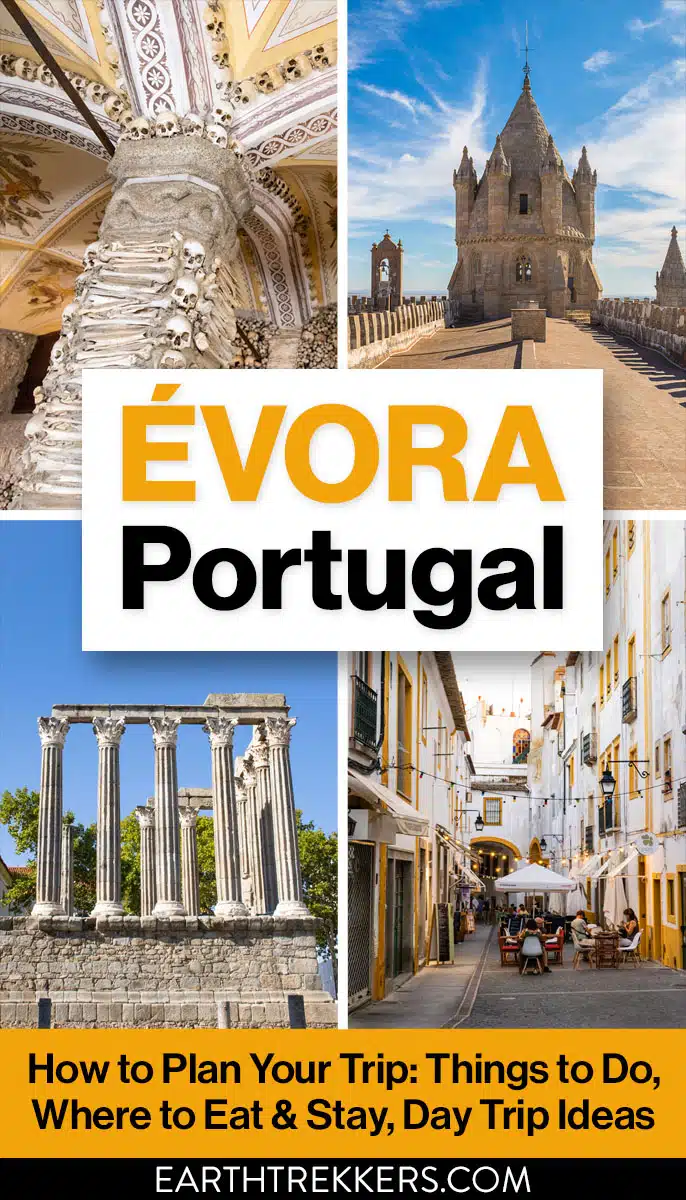
Header image: Sergii Figurnyi/shutterstock.com
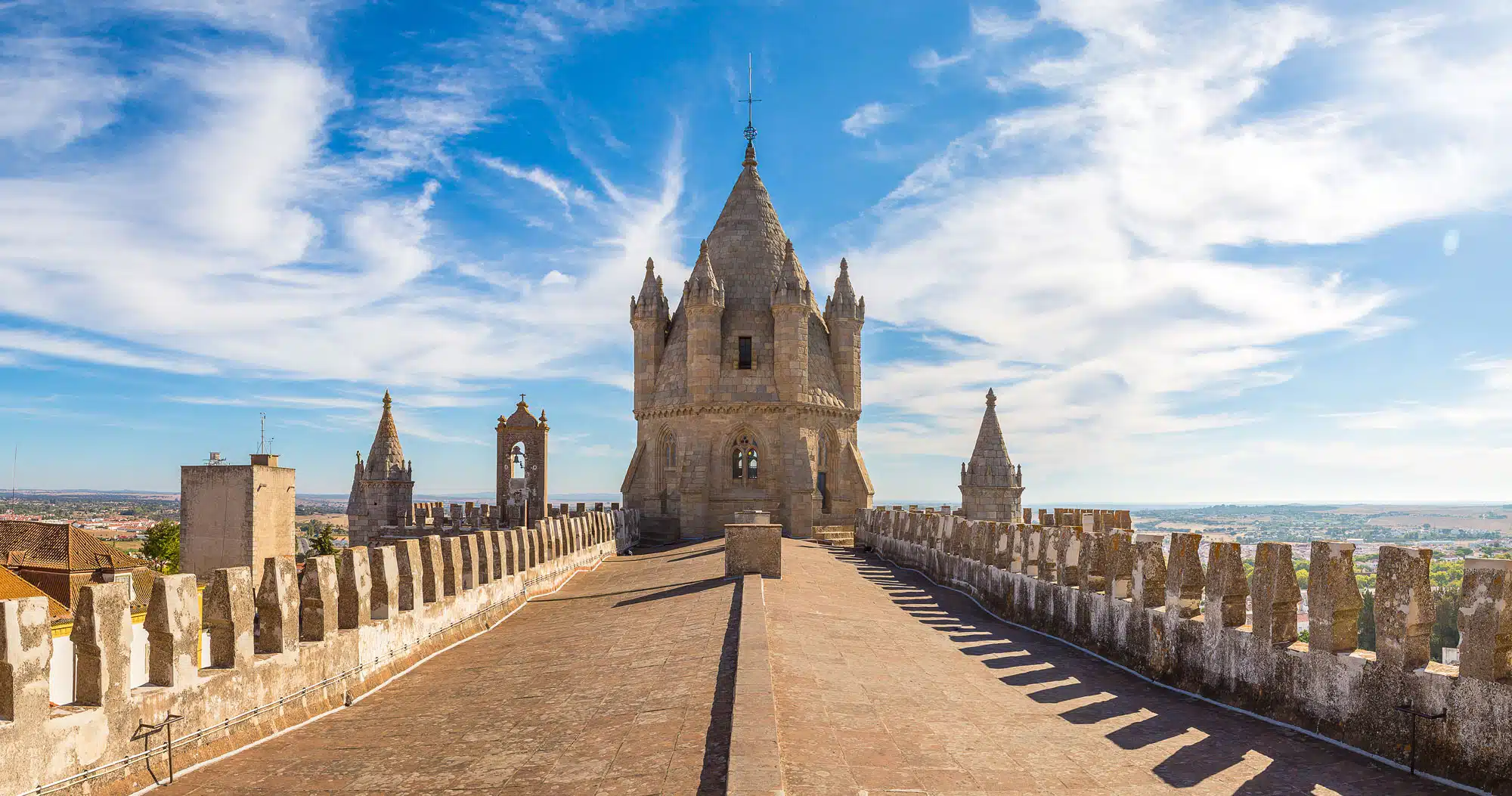

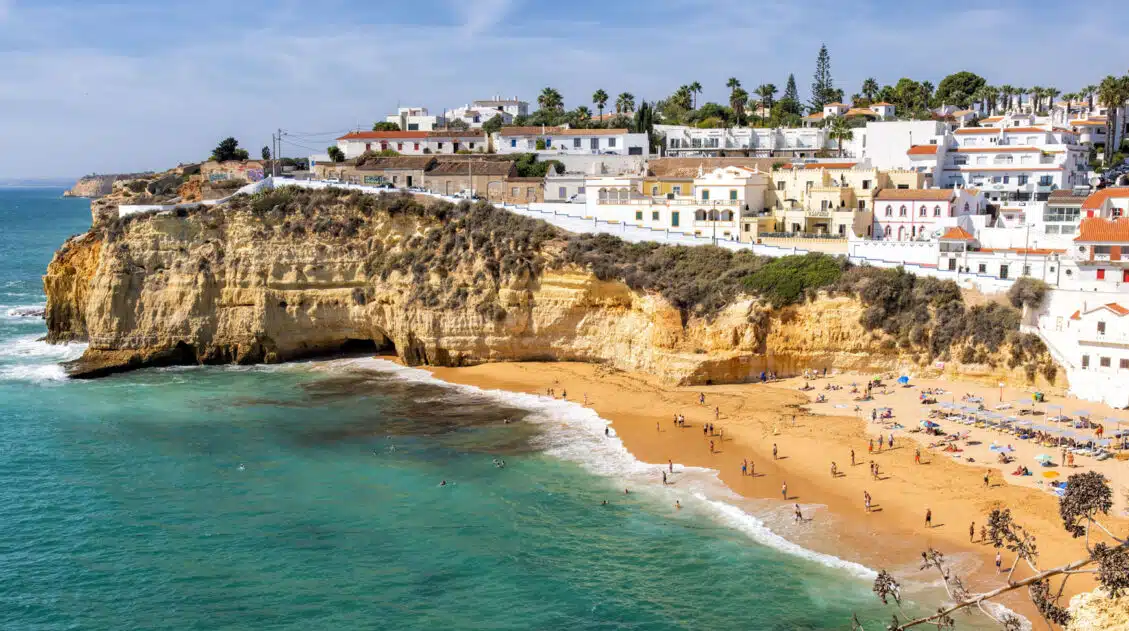
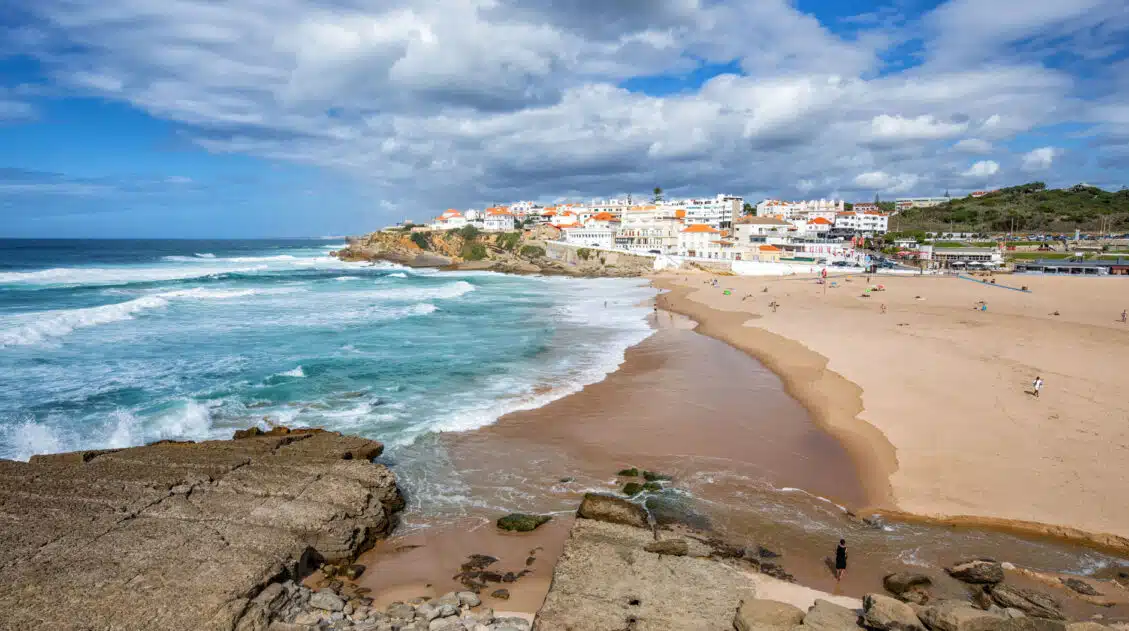
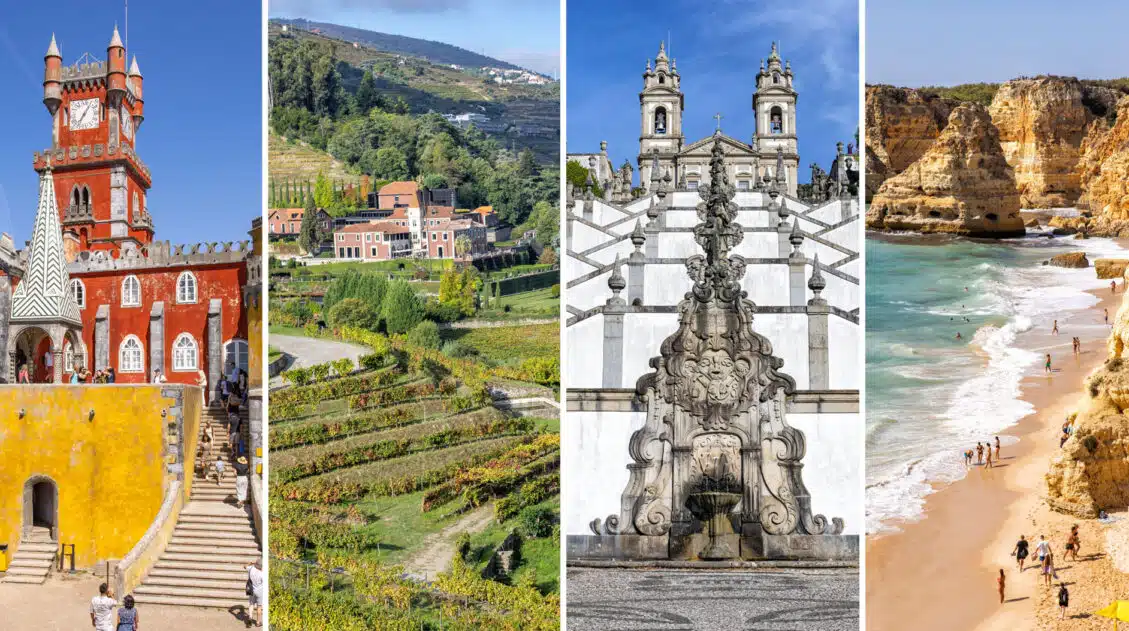
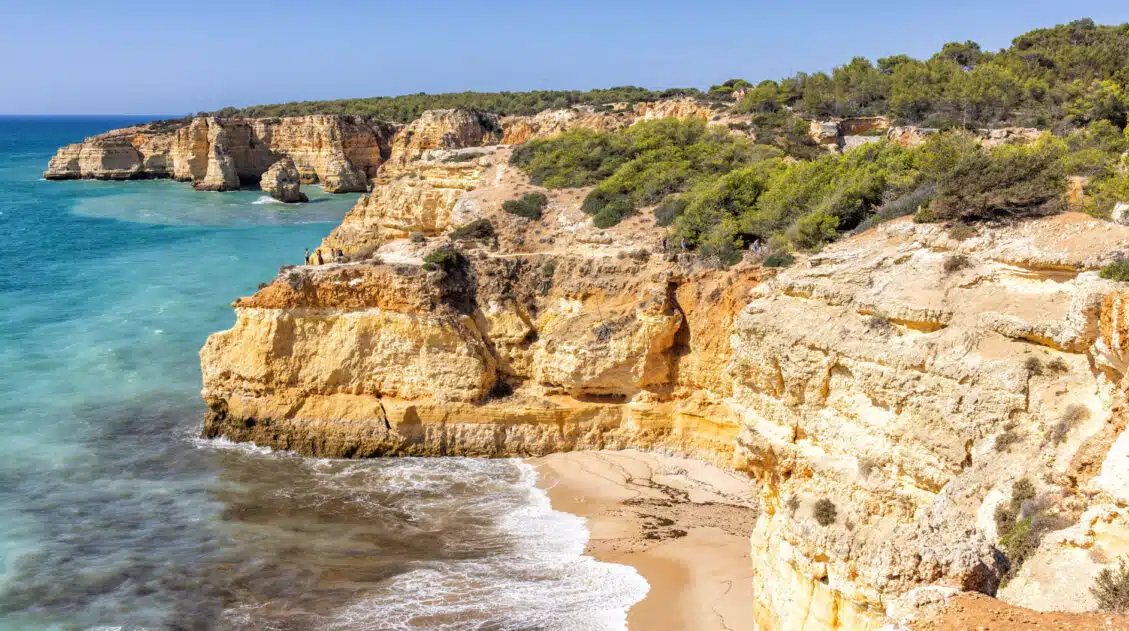
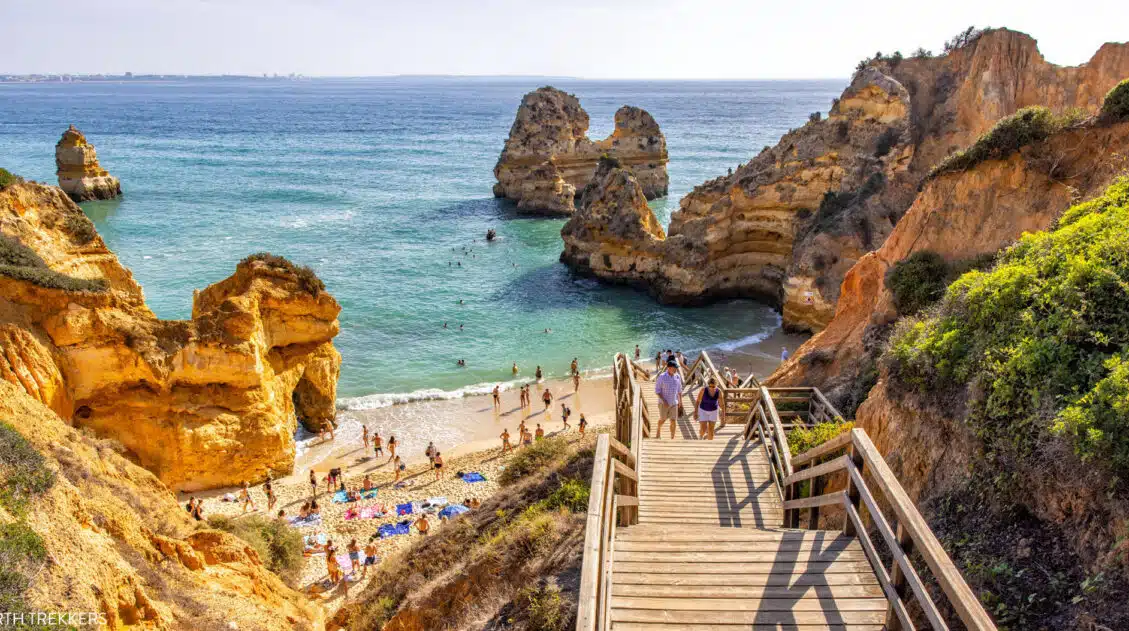
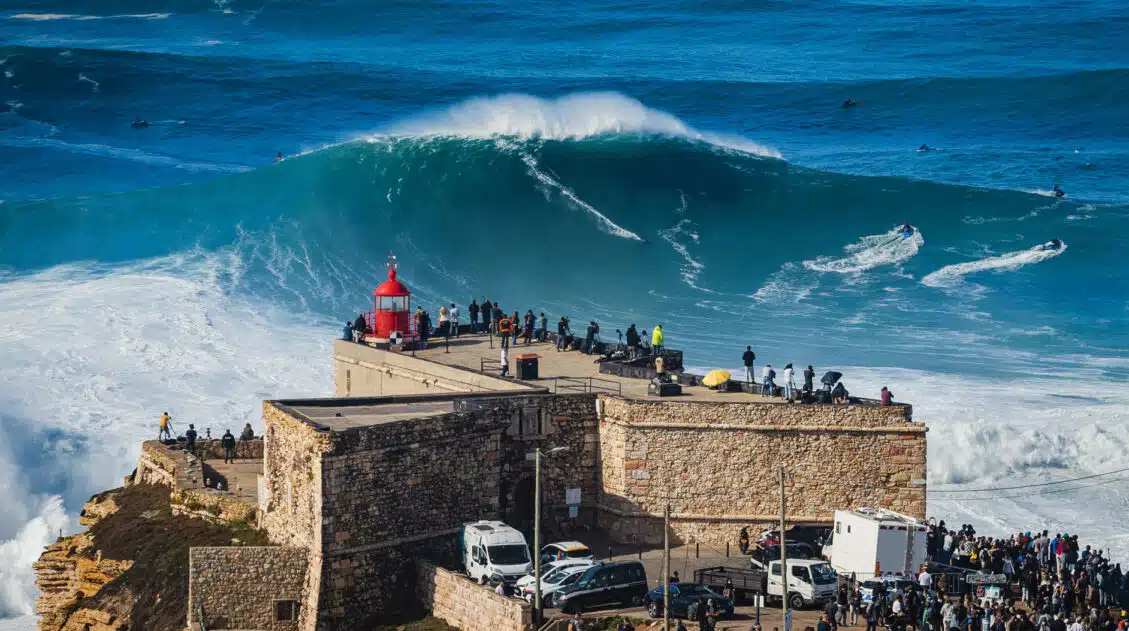
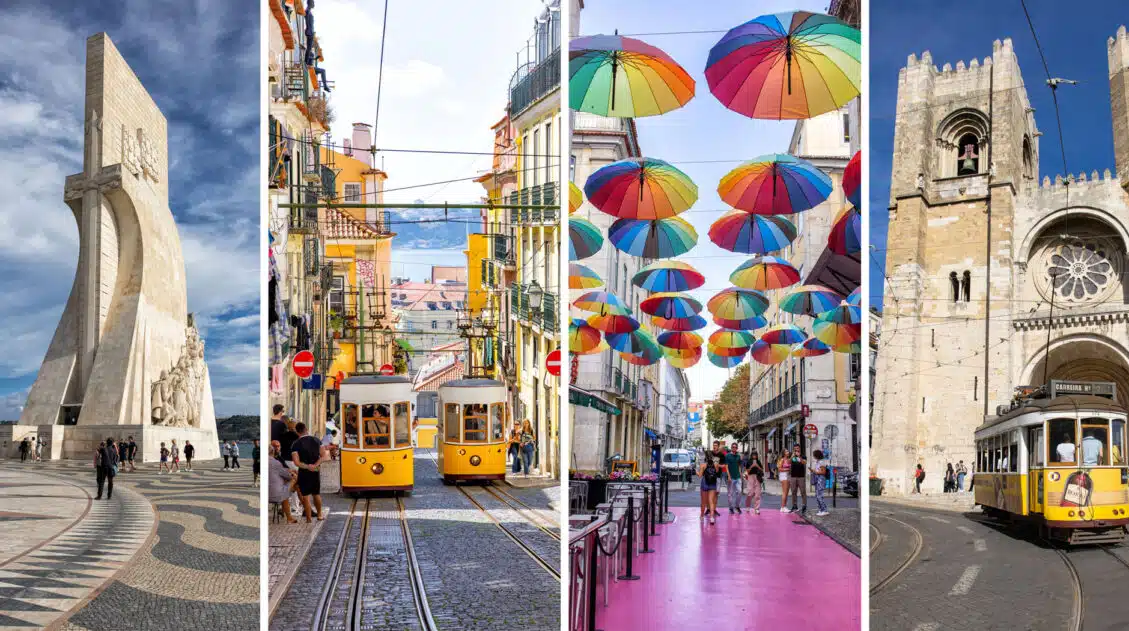
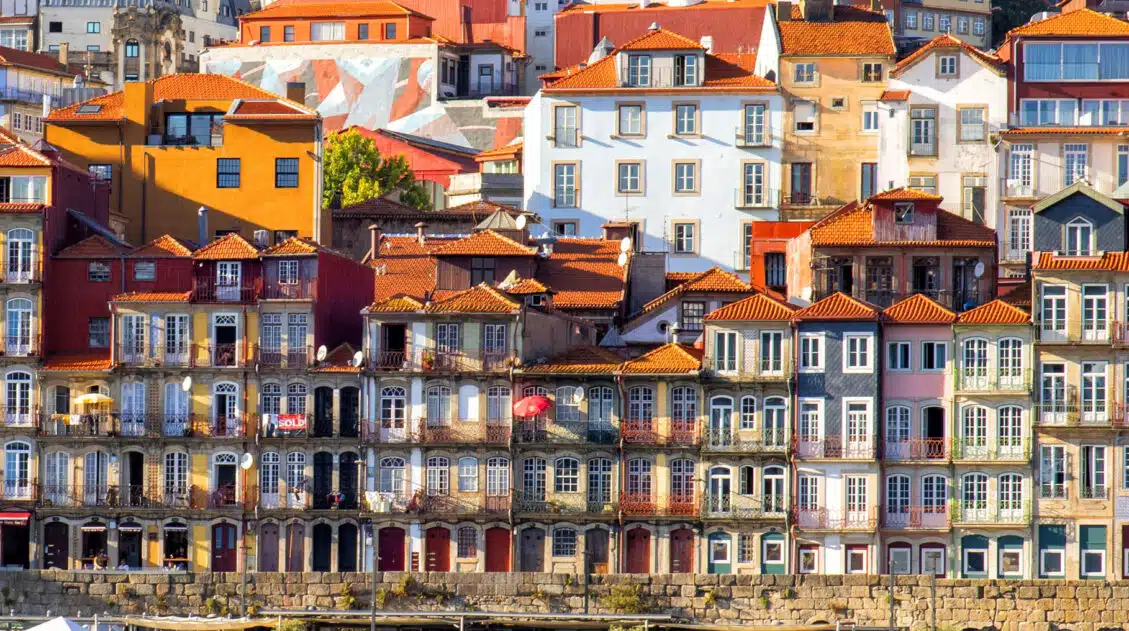
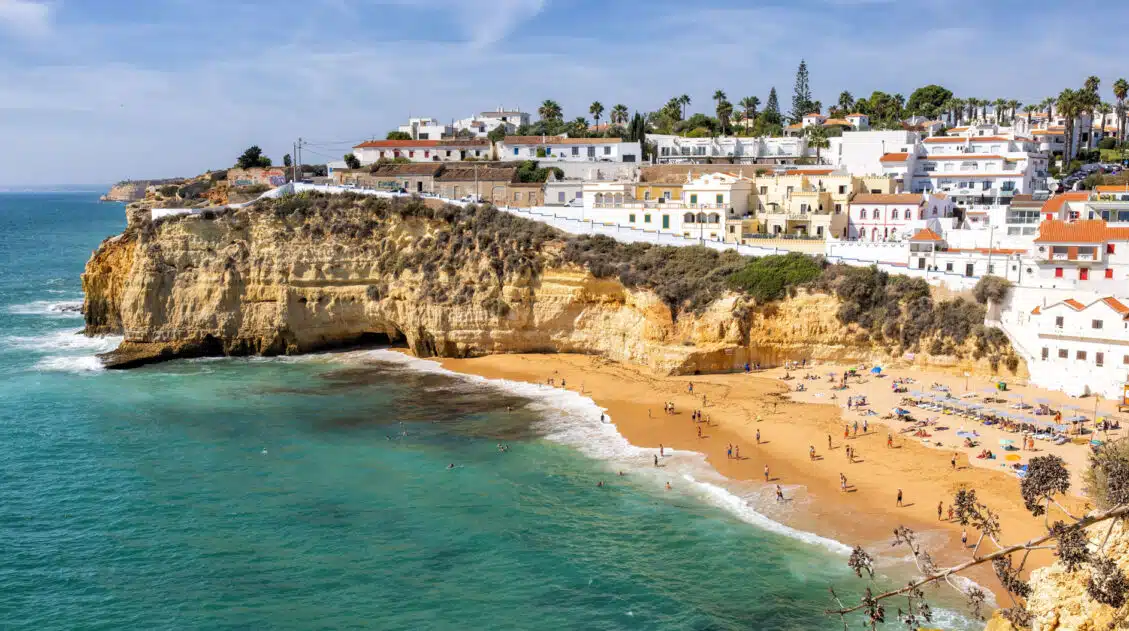
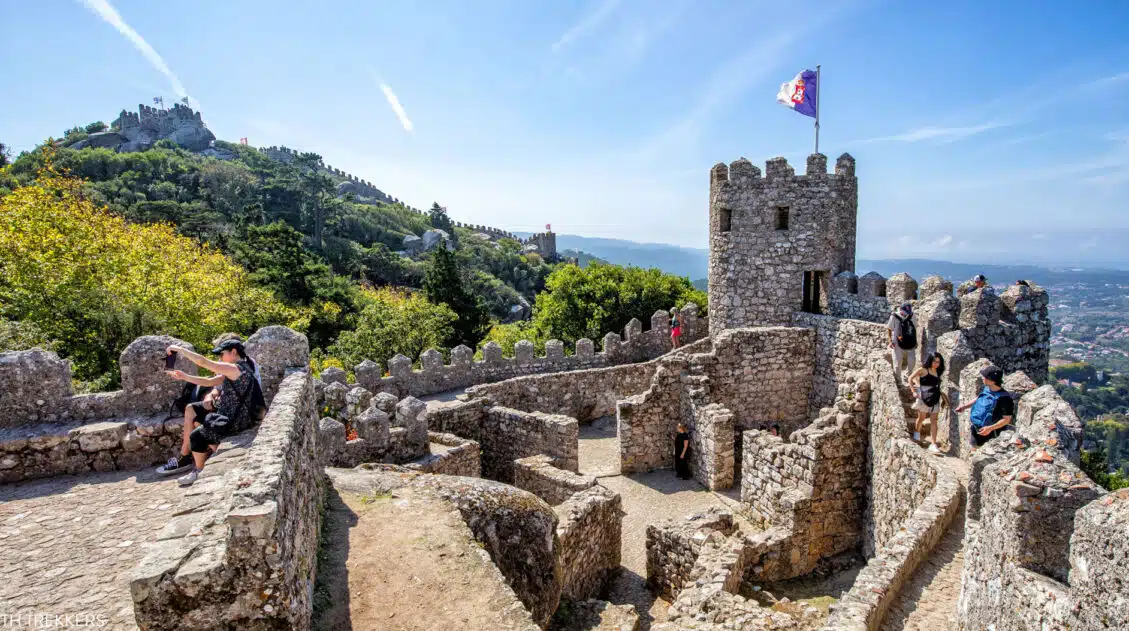
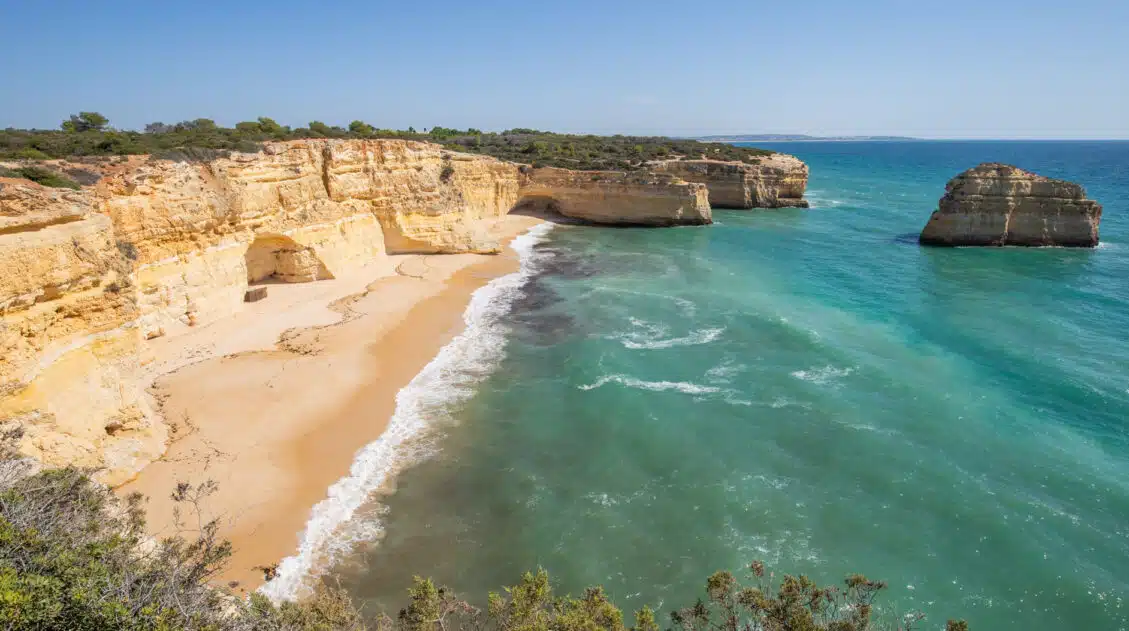
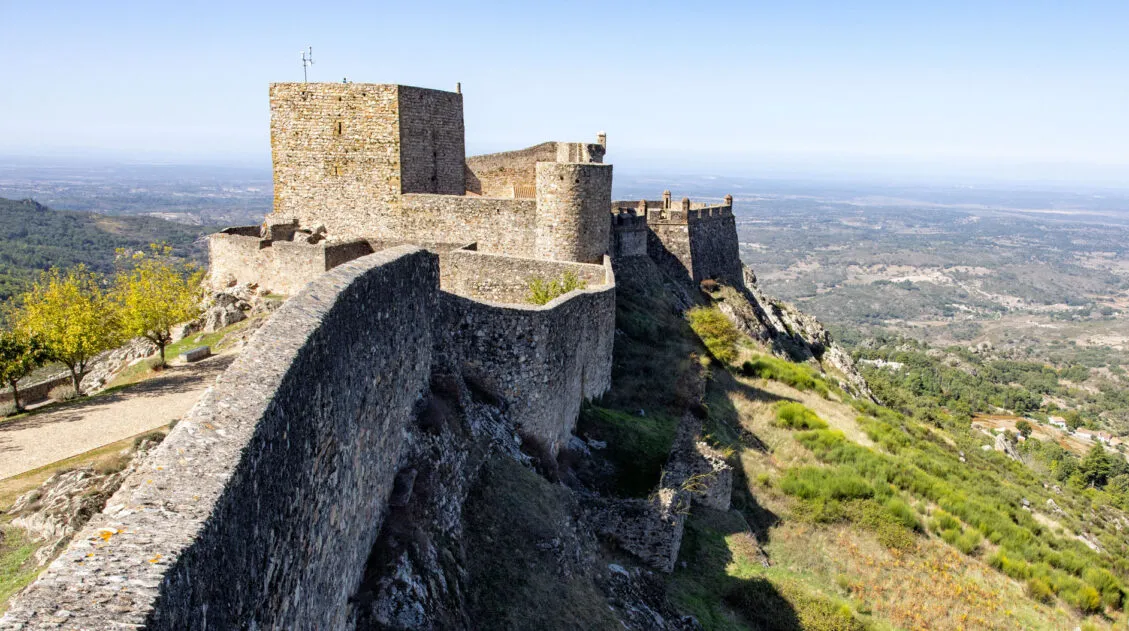
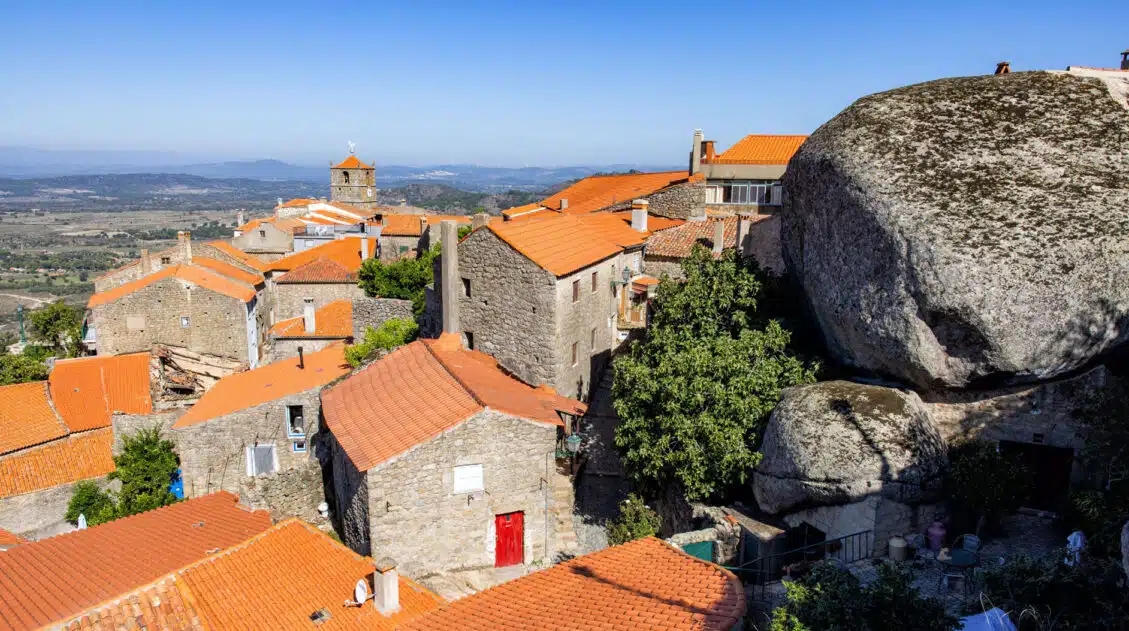
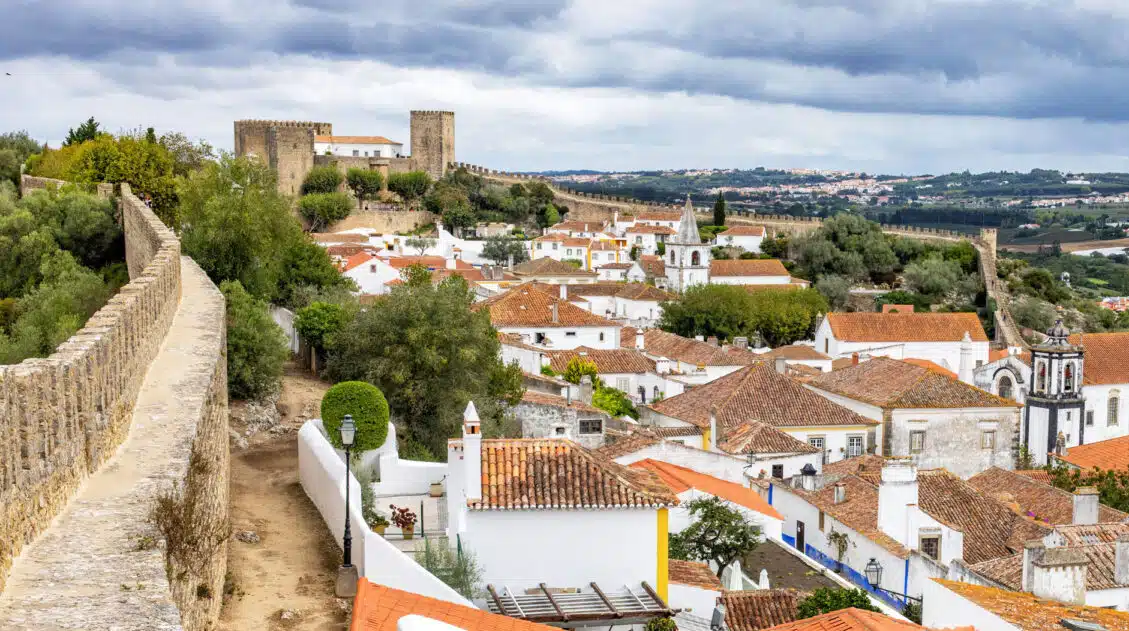
Comments 2